#and Pride and Prejudice by Jane Austen for changing how I viewed the classics
Explore tagged Tumblr posts
Note
Top 5 books that shaped your worldview Top 5 novels that defined your literary tastes
Top 5 Books that Shaped My Worldview
The Fairy Tale Novels by Regina Doman: I can divide my inner life into pre- and post-FTN eras. Seeing characters who were joyful and curious in their faith, incorporating it into their lives, learning about theology--it was life-changing for me.
Orthodoxy, Tremendous Trifles, and Manalive by G.K. Chesterton: Related to the first (which introduced me to him), but these books made me fall in love with the author in his own right, and almost everything I read gets compared to this worldview in some way.
The Lord of the Rings by J.R.R. Tolkien: I first read this as an adult, and if it weren't for the fandom, most of it wouldn't have stuck with me that much. But the scene where Faramir refuses to take the Ring, even if it means the world ending, was a jolt of a moment that, in one swoop, destroyed relativistic worldviews that I'd been dangerously close to falling into.
These Beautiful Bones by Emily Stimpson Chapman: Introduced me to Theology of the Body, which is an absolute cornerstone of my worldview.
Bringing It to the Table by Wendell Berry: Made me think a lot more about agricultural practices, how society needs to care for people and the land, about the dangerous fragmentation and specialization of knowledge, and anyway it's had a lot of influence on how I view the world.
Top 5 Novels that Defined my Literary Tastes
The Little House series by Laura Ingalls Wilder: Sparked my love of historical fiction, historical research, and books that explore cultures very different from my own.
Ella Enchanted by Gail Carson Levine: The very first fairy tale retelling I read, and the one that started it all.
Pride and Prejudice by Jane Austen: The first piece of English classic literature I ever read. Now that forms a huge portion of what I read.
The Fairy Tale Novels by Regina Doman: See the previous list. Without these books, I never would have read Chesterton, Lewis, Tolkien or almost any fantasy author.
Desire by Una Silberrad: It's an example of the type of light vintage novels that I already read a lot of, but it formed my tastes by starting me on a quest to search out very obscure authors and works (to the point that you have to read Gutenberg downloads or Google Books pdfs because they don't have print copies) in order to find hidden gems.
#books#answered asks#apieters#what great questions!#i'm not totally convinced about number 5 in the second list#other contenders included 'the blue castle'#(because it exemplifies those light vintage classics and i read it much earlier)#and the lord peter novels#(because they've got the strong characters and big ideas combined with genre fun)#but i went with desire because it consciously shifted me into searching for more obscure stuff than ever
21 notes
·
View notes
Text
why we should reevaluate how we learn about classical literature
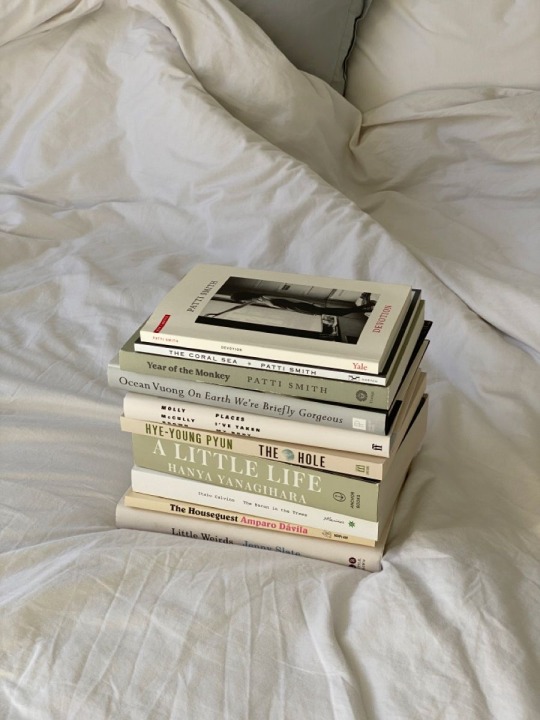
not my image (i believe the credit is @endlessbookclub on instagram). message me for removal.
Classic Literature is important. It helps us understand the perspective and viewpoint of the past, which impacts the future as it helps us learn from the faults and mistakes of our predecessors.
Classic Literature is a fluid term; it can be used to describe any period of literature that has been enjoyed for generations. But perspectives change over generation, especially over the past 50-60 years. We have seen massive changes in the way we view each other and development in tolerance and acceptance of race, sex, and orientation. And hence, some classical literature can perpetrate offensive and harmful stereotypes, as many authors of the time had similar views because they were cisgender, heterosexual white men. For example, of the top 30 classical authors, only 8 were women, and only 1 was a confirmed homosexual. None of them were people of colour. Due to the oppression of the time, there was a complete lack of diverse voices in society at the time. But considering that we have come a long way since then, we should read a book by wider range of narrators and acknowledge that a lot of classical literature is problematic.
To start, let’s talk about race. There are some obvious issues about race in some classics. For example, in ‘Huckleberry Finn’ by Mark Twain, he uses the same racial slur around 200 times in the text. This is problematic because Mark Twain was a white man, and the slurs he used were derogatory to black people. Another example of this is Joseph Conrad’s ‘Heart of Darkness’. It perpetrates harmful racial stereotypes when it depicts the African natives, even though it was trying to antagonise European colonialism. But, as it is written from the perspective of a white man, it doesn’t do justice to the experience of the African natives. The savage and cannibalistic behaviours in relation to the natives depicts the idea of black people being violent. These stereotypes can be harmful as it can influence current perspectives of black people, as it can cause them to be misjudged and therefore discriminated against.
There are also oppressive undertones to books such as ‘Gone with the Wind’ and ‘The Secret Garden’. ‘The Secret Garden’ is set in India at the beginning, and the use of disease to remove Mary from India perpetrates the idea that India is a disgusting, disease-ridden wasteland, which is untrue. Mary’s treatment of the servants at the beginning and then later when she comes back to England, is extremely racist. Mary seems to believe people of colour are supposed to subservient, for example the fact that she expects the servant to be coloured. It also presents Indians as willingly in servitude, which is historically inaccurate. The same is true for ‘Gone with the Wind’ as it depicts slaves as docile and loyal, thus ignoring their struggle. This racist viewpoint invalidates people of colour, who have faced hundreds of years of oppression. This type of narrative silences the stories of those who have faced incredible hardship, and though these books are not necessarily intentionally silencing people, they still have that effect.
Then in terms of women in classic literature, they are generally portrayed as subservient and one-dimensional. In Jane Austen’s ‘Pride and Prejudice’, many of the characters are shown to only want to be marriageable, which creates the idea that women are dependent on men. However when a woman is powerful or emotional, she is generally crazy, evil or both. This is because women were supposed to be innocent and submissive to men, so when they are not submissive, they must be evil. A prime example of this, is Lady Macbeth in the play ‘Macbeth’ by Shakespeare. She is a powerful woman, as she is seen to have power over her husband in some scenes in the play. However, her power leads to her eventual demise - as she is driven insane and commits suicide, which was a terrible sin.
In Classic Literature, homosexuality is rarely discussed, even implicitly, as in a largely christian society, homosexuality was an extremely taboo subject. However, in Robert Louis Stevenson’s ‘The Strange Case of Dr Jekyll and Mr Hyde’, the ambiguity of the character of Hyde could lend itself to the interpretation that Hyde is the manifestation of a homosexual. The fact that he was an indescribable malformation could be that he is a homosexual as homosexuality is not something that is visible, but was considered a malformation at the time. In conjunction with this, the fact that through the use of metonymy, Hyde is linked to Soho. Soho was a place of disrepute, and housed many ‘sinful’ things such as prostitution, gin palaces, and music halls. It wouldn’t be wrong to assume that the few homosexuals of Victorian London lived in Soho, or a place akin to it. However, the fact that Hyde is a manifestation of evil and thus perpetrates the idea that homosexuality is evil.
At the Holt School, we learn a variety of books. However, out of all the books we read, only 2 were written by women, and one by a person of colour. Chinese Cinderella was written by Adaline Yen Mah, a woman of colour. It discusses Chinese culture in a very interesting way, and it inspires discussions about the complexity of foreign traditions. Learning in school is one of the best ways to combat discrimination, and so the following books are ones about different experiences that I believe are important to discuss in school: in terms of race, the book ‘Things Fall Apart’, written by Nigerian author Chinua Achebe, discusses pre-colonial life in Nigeria and the arrival of Europeans in the late 19th century. and the book ‘Train to Pakistan’ by Khushwant Singh which discusses the Partition of 1947 from the perspective of an Indian villager who lived on the border. In terms of sexuality, the book ‘Freakboy’ discusses the idea that being transgender isn’t related to your appearance and how much you enjoy stereotypically masculine things, just what you believe to be your gender identity. In terms of race, there is the book ‘Daughter of Fortune’ which has an immigrant female protagonist, and discusses the gold rush in America, and the mass immigration that happened there. Finally, the book ‘Boys don’t cry’ by Malorie Blackman discusses single parenthood and men taking on a stereotypically feminine role in a household.
All of this is to say that while Classic Literature can be interesting and is important to know about, we should also read books that discuss more current struggles and were written by a wider range of authors, in order to gain exposure to a larger range of narratives and become better global citizens.
(this was my gcse spoken language from 2021. i was really proud of it, so i thought i’d share)
love, n. xx
1 note
·
View note
Photo
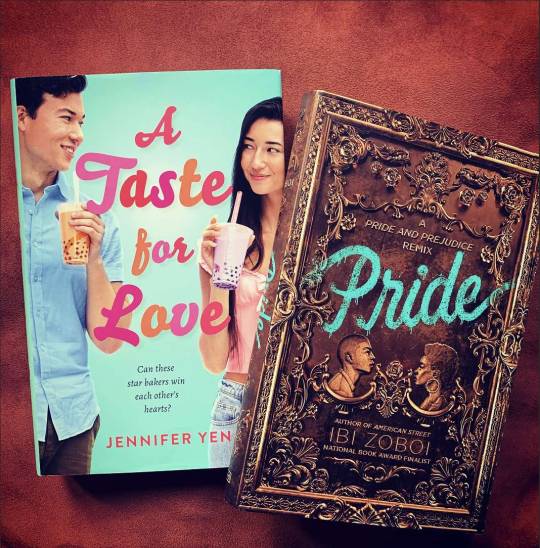
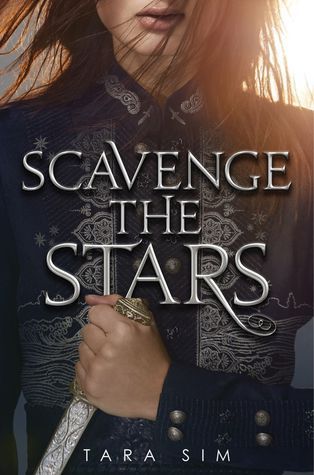

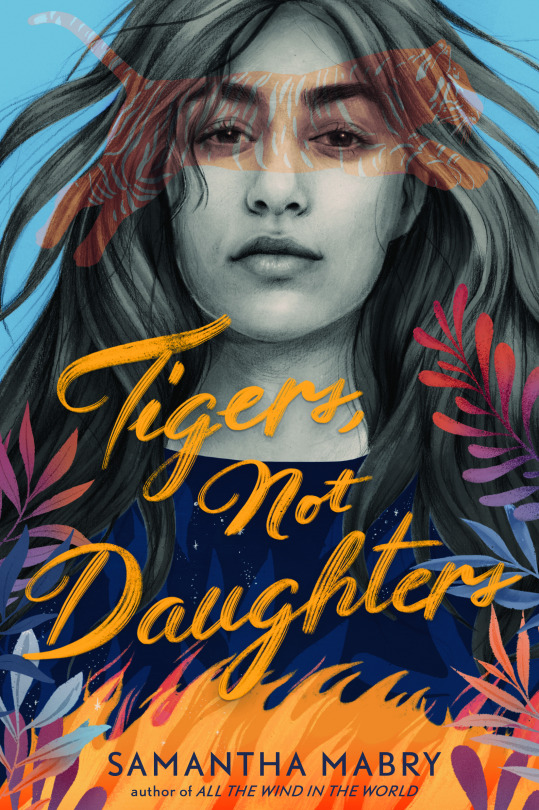
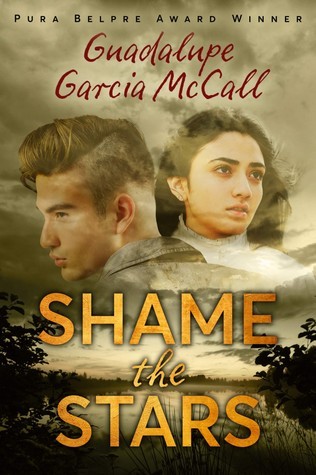
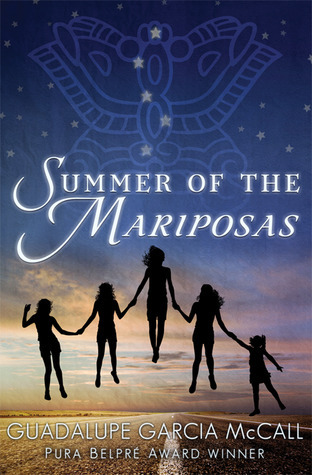
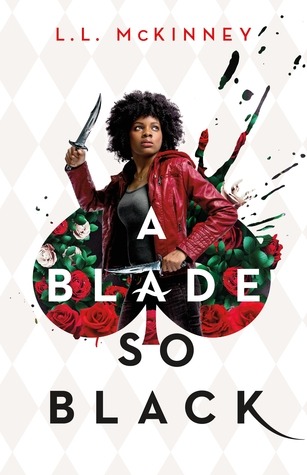
Reimagining the Classics
As I typed the title, my mind jumped to several questions. Whose classics? Also – who has been determining which books are classics? Why do classics stay in the canon and why are they taught in schools for so very, very long? The questions around which works are considered classics are many, but for this post, I want to look at how contemporary authors are retelling these stories with a fresh perspective.
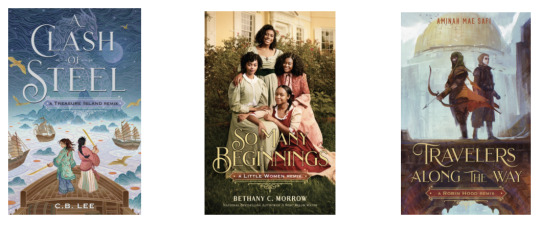
Feiwel & Friends is creating a series of such retellings called Remixed Classics which you can read more about at Publisher’s Weekly. Many books considered classics in U.S. schools are told from a white point of view and erase or ignore other possible narratives in their pages. This collection is an opportunity to shake that up and allow for a wide variety of perspectives. I was lucky enough to read an ARC of Bethany C. Morrow’s So Many Beginnings: A Little Woman Remix. I’ll review it in August nearer publication, but just know that it was incredibly satisfying and made me want to put it in the hands of everyone around me. In elementary school, I read a young people’s adaptation of Little Women and then read the complete novel many, many times over the years. I had unquestioning love for the original until I was older and started to wonder about some of the things I was reading and noticing missing voices–especially regarding enslavement during the Civil War that’s happening during the novel. This new remix addresses some of those concerns and retains all of the things I loved about the original such as the family love that knows no bounds. Morrow’s book will be the second in the series. The first volume is A Clash of Steel: A Treasure Island Remix by C.B. Lee which shares the same publication date–September 7, 2021. These two will be followed by Travelers Along the Way: A Robin Hood Remix by Aminah Mae Safi in March of 2022 and at least on more is scheduled to follow.
Aside from this specific series, there are many other adaptations or retellings and books simply inspired by classics out there that we’ve enjoyed. Here are some we’d recommend.
Pride by Ibi Zoboi ~ Pride and Prejudice Balzer & Bray[K. Imani’s Review]
Zuri Benitez has pride. Brooklyn pride, family pride, and pride in her Afro-Latino roots. But pride might not be enough to save her rapidly gentrifying neighborhood from becoming unrecognizable.
When the wealthy Darcy family moves in across the street, Zuri wants nothing to do with their two teenage sons, even as her older sister, Janae, starts to fall for the charming Ainsley. She especially can’t stand the judgmental and arrogant Darius. Yet as Zuri and Darius are forced to find common ground, their initial dislike shifts into an unexpected understanding.
But with four wild sisters pulling her in different directions, cute boy Warren vying for her attention, and college applications hovering on the horizon, Zuri fights to find her place in Bushwick’s changing landscape, or lose it all.
In a timely update of Jane Austen’s Pride and Prejudice, critically acclaimed author Ibi Zoboi skillfully balances cultural identity, class, and gentrification against the heady magic of first love in her vibrant reimagining of this beloved classic.
A Taste for Love Jennifer Yen ~ Pride and Prejudice Razorbill [Crystal’s Review]
To her friends, high school senior Liza Yang is nearly perfect. Smart, kind, and pretty, she dreams big and never shies away from a challenge. But to her mom, Liza is anything but. Compared to her older sister Jeannie, Liza is stubborn, rebellious, and worst of all, determined to push back against all of Mrs. Yang’s traditional values, especially when it comes to dating.
The one thing mother and daughter do agree on is their love of baking. Mrs. Yang is the owner of Houston’s popular Yin & Yang Bakery. With college just around the corner, Liza agrees to help out at the bakery’s annual junior competition to prove to her mom that she’s more than her rebellious tendencies once and for all. But when Liza arrives on the first day of the bake-off, she realizes there’s a catch: all of the contestants are young Asian American men her mother has handpicked for Liza to date.
The bachelorette situation Liza has found herself in is made even worse when she happens to be grudgingly attracted to one of the contestants; the stoic, impenetrable, annoyingly hot James Wong. As she battles against her feelings for James, and for her mother’s approval, Liza begins to realize there’s no tried and true recipe for love.
Scavenge the Stars by Tara Sim ~ The Count of Monte Cristo Disney Hyperion
When Amaya rescues a mysterious stranger from drowning, she fears her rash actions have earned her a longer sentence on the debtor ship where she’s been held captive for years. Instead, the man she saved offers her unimaginable riches and a new identity, setting Amaya on a perilous course through the coastal city-state of Moray, where old-world opulence and desperate gamblers collide.
Amaya wants one thing: revenge against the man who ruined her family and stole the life she once had. But the more entangled she becomes in this game of deception—and as her path intertwines with the son of the man she’s plotting to bring down—the more she uncovers about the truth of her past. And the more she realizes she must trust no one…
Legendborn by Tracy Deonn ~ Historia regum Britanniae, Le Morte d’Arthur, The Green Knight and other Arthuriana – see Tracy Deonn’s essay: Every King Arthur Retelling is Fanfic About Who Get’s to Be Legendary Margaret K. McElderry Books[K. Imani’s Review]
After her mother dies in an accident, sixteen-year-old Bree Matthews wants nothing to do with her family memories or childhood home. A residential program for bright high schoolers at UNC–Chapel Hill seems like the perfect escape—until Bree witnesses a magical attack her very first night on campus.
A flying demon feeding on human energies.
A secret society of so called “Legendborn” students that hunt the creatures down.
And a mysterious teenage mage who calls himself a “Merlin” and who attempts—and fails—to wipe Bree’s memory of everything she saw.
The mage’s failure unlocks Bree’s own unique magic and a buried memory with a hidden connection: the night her mother died, another Merlin was at the hospital. Now that Bree knows there’s more to her mother’s death than what’s on the police report, she’ll do whatever it takes to find out the truth, even if that means infiltrating the Legendborn as one of their initiates.
She recruits Nick, a self-exiled Legendborn with his own grudge against the group, and their reluctant partnership pulls them deeper into the society’s secrets—and closer to each other. But when the Legendborn reveal themselves as the descendants of King Arthur’s knights and explain that a magical war is coming, Bree has to decide how far she’ll go for the truth and whether she should use her magic to take the society down—or join the fight.
Tigers Not Daughters by Samantha Mabry ~ King Lear Algonquin Young Readers[Q&A with Author]
The Torres sisters dream of escape. Escape from their needy and despotic widowed father, and from their San Antonio neighborhood, full of old San Antonio families and all the traditions and expectations that go along with them. In the summer after her senior year of high school, Ana, the oldest sister, falls to her death from her bedroom window. A year later, her three younger sisters, Jessica, Iridian, and Rosa, are still consumed by grief and haunted by their sister’s memory. Their dream of leaving Southtown now seems out of reach. But then strange things start happening around the house: mysterious laughter, mysterious shadows, mysterious writing on the walls. The sisters begin to wonder if Ana really is haunting them, trying to send them a message—and what exactly she’s trying to say.
In a stunning follow-up to her National Book Award–longlisted novel All the Wind in the World, Samantha Mabry weaves an aching, magical novel that is one part family drama, one part ghost story, and one part love story.
Shame the Stars by Guadalupe Garcia McCall ~ Romeo & Juliet Tu Books [Crystal’s Review]
Eighteen-year-old Joaquín del Toro’s future looks bright. With his older brother in the priesthood, he’s set to inherit his family’s Texas ranch. He’s in love with Dulceña—and she’s in love with him. But it’s 1915, and trouble has been brewing along the US-Mexico border. On one side, the Mexican Revolution is taking hold; on the other, Texas Rangers fight Tejano insurgents, and ordinary citizens are caught in the middle.
As tensions grow, Joaquín is torn away from Dulceña, whose father’s critical reporting on the Rangers in the local newspaper has driven a wedge between their families. Joaquín’s own father insists that the Rangers are their friends, and refuses to take sides in the conflict. But when their family ranch becomes a target, Joaquín must decide how he will stand up for what’s right.
Shame the Stars is a rich reimagining of Romeo and Juliet set in Texas during the explosive years of Mexico’s revolution. Filled with period detail, captivating romance, and political intrigue, it brings Shakespeare’s classic to life in an entirely new way.
Summer of the Mariposas by Guadalupe Garcia McCall ~ The Odyssey Tu Books [Audrey’s Review]
When Odilia and her four sisters find a dead body in the swimming hole, they embark on a hero’s journey to return the dead man to his family in Mexico. But returning home to Texas turns into an odyssey that would rival Homer’s original tale.
With the supernatural aid of ghostly La Llorona via a magical earring, Odilia and her little sisters travel a road of tribulation to their long-lost grandmother’s house. Along the way, they must outsmart a witch and her Evil Trinity: a wily warlock, a coven of vicious half-human barn owls, and a bloodthirsty livestock-hunting chupacabras. Can these fantastic trials prepare Odilia and her sisters for what happens when they face their final test, returning home to the real world, where goddesses and ghosts can no longer help them?
Summer of the Mariposas is not just a magical Mexican American retelling of The Odyssey, it is a celebration of sisterhood and maternal love.
A Blade So Black by L.L. McKinney ~ Alice in Wonderland Imprint
The first time the Nightmares came, it nearly cost Alice her life. Now she’s trained to battle monstrous creatures in the dark dream realm known as Wonderland with magic weapons and hardcore fighting skills. Yet even warriors have a curfew.
Life in real-world Atlanta isn’t always so simple, as Alice juggles an overprotective mom, a high-maintenance best friend, and a slipping GPA. Keeping the Nightmares at bay is turning into a full-time job. But when Alice’s handsome and mysterious mentor is poisoned, she has to find the antidote by venturing deeper into Wonderland than she’s ever gone before. And she’ll need to use everything she’s learned in both worlds to keep from losing her head . . . literally.
*We didn’t include fairy tales. Happily, that could be an even longer list and will be a post for another day.
16 notes
·
View notes
Text
Book Reviews 7&8: Pride and Prejudice by Jane Austen & Anne of Green Gables by L.M Montgomery
This review’s theme is female-led romantic classics ! Audience age: roughly age 10+
This review is about two of my all-time favourite female-led classics! Pride and Prejudice is one of the only classics I can truthfully say I enjoy, sorry to lovers of classics I just cannot bring myself to love many of them. Elizabeth Bennet is a timeless heroine, and her story is an easy, comfortable read. Anne of Green Gables, likewise, echoes the same sentiments, albeit with considerably more hijinks added into the mix- and with the heroines’ age gaps and very different circumstances, this is to be expected!
Nostalgic review
Rating: ★★★★★
These novels are, if I didn’t already make clear, comfort stories in the best sense of the word. It’s been several years since I last read either of them in full, but there is a special ease about them at all times; even in the midst of disaster, you know there is hope just around the corner.
In the case of Pride and Prejudice, I’ll admit that as much as I love Lizzy, it is the entirety of the story that draws me in more than just her character. I love the general vibe of the novel, the drama and gossip in the town and all the fuss that comes about with each new ball the Bennet sisters must attend for social reasons. The surprising scandals are all very alluring, and really, Jane Austen’s stories walked so Gossip Girl could run!
On the flip side, Anne as a character- she is one of my absolute most favourite characters ever written. I’m no orphan and I’ve never had to struggle in the way she did, but I grew up the odd one out in a small town, with a hot temper and a huge imagination that always managed to get me into trouble. Everything about Anne is relatable to me- right down to the infamous scene where she attempts to dye the red hair she hates and it goes green instead (I tried to bleach mine and it went orange, so I didn’t fare much better).
While it has been a long time since I last read these books, I am expecting more positive surprises than negative ones, now that I’m older with a bit more perspective!
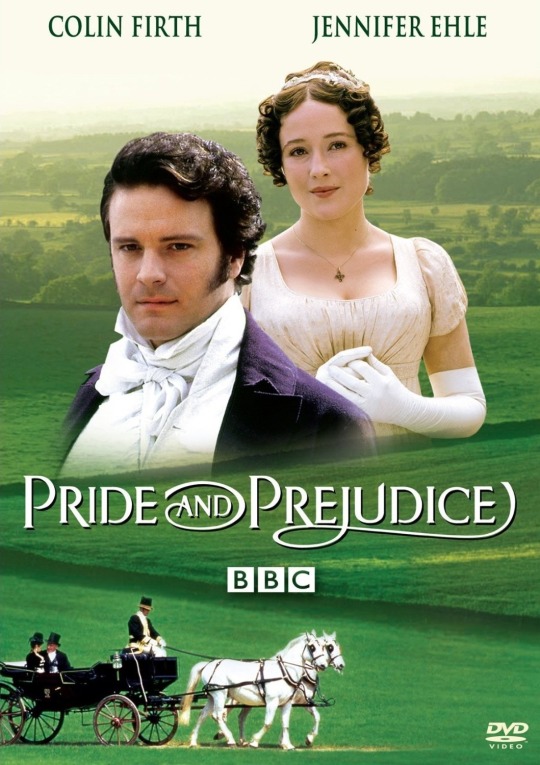
Pride and Prejudice Review
Post-read: ★★★★★
Synopsis: Elizabeth Bennet, the second daughter of a middle-class family desperate to marry off their five daughters, navigates her way through matters of marriage, estate, love and temperament in an attempt to make a match that ensures her own happiness in a time where love was not always a priority.
Set in Regency England, the middle-class family the Bennets begin to fear their ruin as Mr Bennet grows older. See, Mr Bennet’s estate and fortune detailed in his will can only go to a male heir upon his death, thus ruling out his five daughters without their marriages taking place. As luck would have it, two eligible rich men arrive in town, and Mrs Bennet becomes obsessed with setting up her daughters with them. Amidst numerous balls and trips to the rich families’ residence of Netherfield, Jane Bennet catches the eye of sweet Charles Bingley, while Elizabeth begins a cold war with Bingley’s best friend Fitzwilliam Darcy, after he slights her upon their first meeting, to Mrs Bennet’s fury.
Over time, Mr Darcy becomes increasingly attracted to intelligent and witty Elizabeth, but so do other, less appealing characters to the likes of Elizabeth’s pretentious and stupid cousin, the clergyman Mr Collins, and the handsome militia officer Wickham, who tells Elizabeth that he has lost his fortune because Darcy stole it from him. When Elizabeth’s fifteen year-old sister runs away with Wickham in the middle of the night, Elizabeth is forced to hear our Mr Darcy’s side of the story and put aside her prejudice toward him. He, in turn, overcomes his pride, and by the end of the novel the two are able to freely admit their love without pride or prejudice standing in the way.
For such an old book, it really does stand the test of time. The lessons Austen teaches in this story are forever applicable to relationships in any timeline, though we have to make do without the fancy dresses and balls (and the gender norms and sexism, so it’s still a win for us, I suppose). I enjoy her writing and love how humorous it is; Austen perfected the art of polite mockery. Elizabeth is a good role model, and her character development over the course of the novel is wonderful.
Characters who aged well: first and foremost, Elizabeth Bennet of course. She’s headstrong and real, and satisfyingly selfish when necessary (nobody should be selfless when presented with a proposal from Mr Collins, and I will not hear otherwise). Mr Darcy remains an eternal heartthrob- I do sometimes wonder how someone less determined to see the bad side in Darcy would have viewed him from the get-go (my guess that had Jane been the perspective offered, Darcy might have been cut a bit of slack earlier. But where would be the fun in that?). I won’t comment on all the characters, but I will mention that I appreciated Jane much more as an adult. As often happened with sweeter female characters, internalised misogyny used to get the best of me on occasion and I would resent them for being ‘boring’. Now I just think she’s lovely.
For a villain, Mr Wickham aged so well. I once saw a Tumblr post declaring him the 1800s equivalent of a modern-day fuckboy and it’s stuck in my mind ever since because yes, that’s exactly what he is.
Characters who aged badly: Everybody hates Mr Collins, but I don’t know if I’m entirely correct in listing him here, given he wasn’t well liked back in 1813 either. As an antagonist, he technically aged well, but I’m going to keep him here anyway because I felt like ranting about him. The same goes for nauseating Mrs Bennet and Mary… they aged as intended, but I will remain frustrated with them anyway.
Favourite scene/quote: ‘An unhappy alternative is before you, Elizabeth. From this day you must be a stranger to one of your parents. Your mother will never see you again if you do not marry Mr Collins… And I will never see you again if you do.’
This line never fails to make me laugh, whether on paper or onscreen. He does delight in vexing his over-excitable and irritating wife, and in this case it was all the more pleasing: he saw his wife trying to force his favourite daughter into marrying perhaps his least favourite person on the planet and supported Elizabeth’s decision to reject the man wholeheartedly, as well as reinforces the bond between father and daughter in a humorous way.
Scenes I particularly enjoyed are the ones surrounding Wickham’s secrets and shocking fake elopement with Lydia, partially because Lizzy and Darcy become close, but mostly because all the detective work unravelling the drama is so entertaining. It’s pleasing to see Darcy come out the undisputed hero after all Wickham’s deceit and attempts to ruin many girls’ reputations in attempts to get their fortunes.
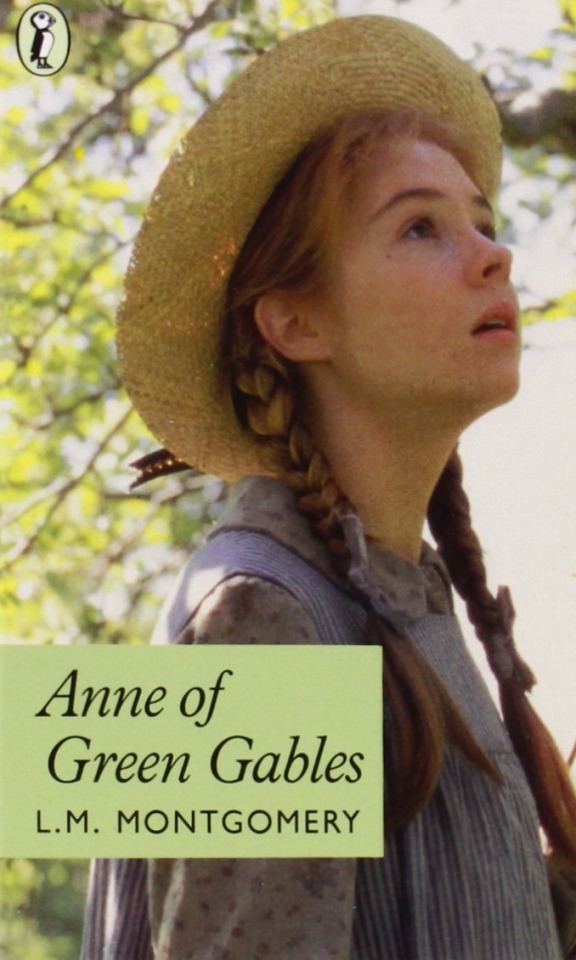
Anne of Green Gables Review
Post-read: ★★★★★
Synopsis: red-headed orphan Anne Shirley is adopted by unmarried siblings Matthew and Marilla Cuthbert by accident. After a trial period, they agree to keep Anne, and the misunderstanding brings the greatest joy to their small farmhouse in the town of Avonlea.
This book! Everything about it!
As I anticipated, time did not change any of my love nor expectations for this book, but rather made me fall in love with it all over again.
Starting at the beginning, Anne’s introduction to the Cuthberts starts off with her first asking him to call her by a name she chose herself, and then settling with keeping her own name as long as they remember to spell it with an ‘e’. This alone is already something I relate strongly to- I can’t bear when people forget the second ‘e’ in my name… it looks so empty.
Moving on from the names!
Anne is enrolled in school, a place she is successful in due to her intelligence, yet many adults in the town, including her teacher, refuse to treat her very well. Anne’s temper gets her into trouble of numerous occasions with adults and classmates alike, the most memorable instance being when the handsome popular boy Gilbert Blythe calls her ‘carrots’ and tugs her plaits to get Anne to notice him- and she does, but likely not in the way he hoped: she smashes her writing slate over his head. Utterly iconic move.
The friendship between Anne and her neighbour Diana is a high point of the book, too. Anne is always on the lookout for ‘kindred spirits’ or ‘bosom friends’, terms she applies not only to Diana, but also to Matthew and her second teacher, the amazing Miss Stacy who represents that one literature teacher every writer child connects with.
Navigating dozens of scrapes and accidents, Anne manages to graduate school and attend an academy where- with Miss Stacy’s encouragement- she obtains her teaching license in one year instead of two, and ties first place with Gilbert Blythe, whom she has ignored to the best of her ability since the ‘carrots’ incident, though he has tried many times to obtain her forgiveness. Toward the end of the novel, Matthew has a heart attack that shatters both Anne and Marilla, and she gives up the scholarship she won in favour of teaching close to home in order to stop Green Gables from being sold. Gilbert Blythe passes on his teaching position at Avonlea school to Anne so she won’t have to struggle, and Anne finally accepts that she has lot more love for Gilbert than anything else.
Though they do not get together in this book, the following sequels end with their marriage, and their developing romance is a special part of this first novel too.
Characters who aged well: Anne Shirley, best girl! I think I’ve already listed enough examples to showcase what I think of her, but I also think she has aged very well as an interesting character and feminist role model, all the way back in 1908. Gilbert, too, is a wonderful example of how a man should be, and his character growth is every bit as good as Anne’s. The supporting characters are wonderful too.
Characters who aged badly: Mr Phillips, Anne’s first teacher who treated her terribly and tried to marry a student in the same classroom. Predator teachers exist now too, of course, but this man simply did not cop the jail time he deserved (yes, times were different then, I don’t care).
Favourite scene/quote: ‘I’m not a bit changed- not really. I’m only just pruned down and branched out. The real ME- back here—is just the same.’
This is the essence of Anne’s story, and I like to think for many people. Most people like to think they’ve changed while growing up, but the truth is that most people remain the same, they just grow into their ideas and find new dreams to follow; change doesn’t have to signify loss, just growth.
There are many great scenes in Anne of Green Gables, and narrowing down favourites is quite hard. As a romantic, I loved any scene with Gilbert, even though Anne herself was desperately trying to ignore him. All of Anne’s scrapes are hilarious, too, but if I had to choose, it’s when Matthew picks Anne up from the station the day they meet, and the quiet man- whose only interactions are with his sister- immediately takes a liking to the poor orphan girl no other adult has ever been kind to. Their ride home together signifies a beautiful change in both their lives, and their instant bond is heart-warming.
Overall verdict: I’ve read both of these novels more times than I care to count, so there was never really any strong doubt that I wouldn’t continue to love them a fair amount. It may seem a ridiculous thing to say that I still find them both to be well-written, but as someone who finds many ‘classics’ incredibly boring and too wordy to properly enjoy (looking at Charles Dickens, by the way), I’m making a note of my contentment with Austen and Montgomery’s writing styles. I do generally prefer female authors in the first place (and not just because most men can’t seem to write good female characters to save their lives) so I’m not entirely surprised by this, though I think it necessary to mention after my shock over the stunted sentences in Enid Blyton’s works and Nancy Drew and the Mystery at Lilac Inn.
While rereading these books I also felt compelled to re-watch the televised versions and show them to my younger sister too (she loves them!). I do have personal favourite versions, and this is due not only to the actors in the cast, but to which I deem the most accurate and faithful in comparison to the original written source material. For Pride and Prejudice, contrary to the popular version amongst most people who reference it, my favourite is not the Kiera Knightley movie. I greatly prefer the BBC show, finding the casting, setting and costuming far more accurately detailed. I don’t hate the movie, just to be clear! But if you want accuracy watch the television show, especially because the episodes had a chance to explore more of the script than the movie did, so there was no need to cut things out or rush certain developments.
As for Anne of Green Gables, there are a few different movies and series. My forever-favourite is the Megan Follows and Jonathon Crombie led film series, with the first movie released in 1985. The casting was perfect, I adored the settings and costuming, and Megan as Anne captured everything about the character in the most perfect way imaginable. As for the newer Netflix series Anne with an E, I have only seen a few episodes but I think that was really well done too; the casting of the leads was also very faithful to Montgomery’s novels. It’s a shame that Netflix chose to cancel a show that so many young people really enjoyed, but I hope maybe some of them will watch the movies or pick up the books!
The true importance of these books for me as a child was my connection to the characters, which hasn’t changed at all. Though I do identify in part with Elizabeth, it is Anne who is so much like me, and while I haven’t reviewed past the first book here, I can confirm that my personality has evolved in the same way hers does in the sequels. Something interesting I noticed when mentioning either of these series to people unfamiliar with them is that they are surprised I like these books. The reason? Owing to how old the novels are, people expect the characters to be boring and grounded in sexist tropes. While I cannot deny there are plenty of books out there that are full of these issues, the characters of Elizabeth and Anne are very much feminist in the best way possible. They fight against the expectations for their gender and forge their own paths. Their relationships with the male leads take a long time to develop- Anne and Gilbert do not get together until proper adulthood- because they want everything to be done on their terms, within their own certainty. Neither lead suffers from ‘not like other girls’ syndrome, both cherishing their friendships with the women around them, and Anne especially is a celebration of the best parts of femininity.
Ultimately I find both Pride and Prejudice and Anne of Green Gables to be comfort novels. There is conflict and angst, humour and love, and the reassuring knowledge that by the end of it everyone will get their happy ending.
#Pride and Prejudice#anne of green gables#anne with an e#feminism#feminist literature#university project#romance#classics#female leads#character development#book review#book rating
3 notes
·
View notes
Text
Wrap Up 2020

Welcome to my first calendaristic year review of books. I know that normally I just review books and I rarely post anything else, which I find to be the right thing to do, after all this is a blog about books that I’ve read.
This year, however, I’ve decided to write a post about my year in books, somewhat like what you would find on Goodreads. I want to tell you all about my favourite and least favourite books from this year, but I can’t do a top ten list, I would much rather tell you about some of the books.
These books are in no particular order, because I find I can’t quite rank books all that well. Here are some of the books that I loved:
Three Dark Crowns by Kendare Blake.
It’s just a wonderful fantasy book that I fell in love with, especially the fact that it is a matriarchal society. I haven’t read anything quite like it.
Clockwork Angel by Cassandra Clare
I’m not sure why I decided to start this series, but I’m glad I did. You can easily fall in love with the characters and fast-paced action.
Serpent and Dove by Shelby Mahurin
I devoured this book and you might as well. I adore the enemies to lovers trope and in this novel it is executed brilliantly.
Scythe by Neal Shusterman
A dystopian future where humans have cured all diseases and it is almost impossible to die. Doesn’t it sound promising? It is one of the most amazing series I’ve read and I hope that next year I’ll get my hands on the last book.
Ignite Me by Tahereh Mafi
While the first book was hard to get through, this one was absolutely amazing. I loved the love triangle and subject matter was fascinating.
Anna and the French Kiss by Stephanie Perkins
Who doesn’t love a good romance story set in Paris? This book was heart-warming and gripping. It was also the first ebook I read this year.
Again but Better by Christine Riccio
If you’ve met me in real life, I’ve probably gushed about how good this book is. I loved the author’s style and the way it was structured, I loved the travels described in the book and the life of a student learning abroad.
Red, White & Royal Blue by Casey McQuiston
This was a light read that left me with a smile on my face. I can see why it won a Goodreads choice award in 2019. I loved the representation and the political theme.
Fangirl by Rainbow Rowell
I reread this book in December with no clue what actually happened in the novel. I loved this book probably as much as the first time I read it. The depth with which the author portrays the characters is wonderful.
Love Her Wild by Atticus
I didn’t read that many poetry books or anthologies this year, but this one is clearly the best. It gives you hope and makes you feel in love, the short poems don’t follow classic structures, therefore it packs a punch.
Sapiens. A Graphic History. The Birth of Humankind by Yuval Noah Harari, David Vandermeulen, Daniel Casanave
This is easily one of the best nonfiction books I’ve ever read. It is very informative but also entertaining and I loved it.
Heartstopper by Alice Oseman
This series was incredibly heart-warming, easy-to-read, and enjoyable. I really hope more people read these books because they are phenomenal and adorable.
The Picture of Dorian Gray by Oscar Wilde
This was one of the most fascinating books of the year, even though it was quite short. I loved the whole premise of the portrait that changed due to the sins that Dorian committed.
Pride and Prejudice by Jane Austen
This was a reread and I finally gave this book a fair shot. I ended up changing my opinion and falling in love with Mr. Darcy and Elizabeth Bennet. I loved Jane Austen’s sarcastic tone in the book, it was incredible.
Hamlet by William Shakespeare
How can you possibly forget this story? It is haunting but also hilarious at the same time. Although it is a tragedy, the play has many moments where the audience can laugh. I found the whole premise interesting and the fact that the main character being kidnapped by pirates was a minor aspect of it made the novel all the more ingenious.
To Kill a Mockingbird by Harper Lee
I found the point of view from which it is told rather odd, but otherwise this is a solid book that should be read. The way it talks about racism in America is compelling and the intrigue with Bo is also fun.
Eleanor Oliphant Is Completely Fine by Gail Honeyman
I found this book to be absolutely riveting. The unreliable narrator was incredible and the way you piece together slowly, but surely what the past was truly like was unrivalled.
The Little Paris Bookshop by Nina George
I was supposed to go to Paris this year with my family and because of the pandemic we had to cancel. Although, reading this book did make me feel as if I were there, it had magically transported me across the continent and I loved it.
A Darker Shade of Magic by V.E. Schwab
I loved the whole premise of multiple Londons that are linked together. The magical system was wonderful and I loved reading this series so much. The characters are lovable and relatable.
The Invisible Library by Genevieve Cogman
This is a love letter to books and I adored it. I still think about it. The worlds that we are introduced to are astonishing and the action is impressive.
On the other side of the spectrum, here are some books I couldn’t quite stand, without describing them:
It Ends with Us by Colleen Hoover
The Problem with Forever by Jennifer L. Armentrout
Twisted Palace by Erin Watt
My Oxford Year by Julia Whelan
Reflecting on this year is something that is necessary before 2021 comes. I read eighty books, some I loved and some I hated. I hope that by this time next year, I will have read fifty books and loved a lot of them.
Dear reader, I hope you’ve had a year with as many moments of joy as possible. I hope that you’ve read books that have made you feel so much more than bored. I hope that you fell in love with at least one book. Thank you so much for reading my reviews this year and I hope they helped you a little, or at least entertained you. We will see each other in the new year, where I hope we read as many books as possible.
Sending love to all of you!
Oana.
#wrap up 2020#best books of 2020#three dark crowns#kendare blake#clockwork angel#cassandra clare#serpent and dove#shelby mahurin#scythe#neal shusterman#ignite me#tahereh mafi#anna and the french kiss#stephanie perkins#again but better#christine riccio#red white and royal blue#Casey McQuiston#fangirl#rainbow rowell#love her wild#atticus#sapiens a graphic history#yuval noah harari#heartstopper#alice oseman#the picture of dorian gray#oscar wilde#pride and prejudice#jane austen
14 notes
·
View notes
Text
Quarantine Cinema: Emma
OK to be upfront, I never read the book “Emma,” which is unusual for me when watching a movie based on a book. I actually haven’t read any of Austen since I was 13/14 and my mom told me I had to read “Pride and Prejudice” before I could read “Pride Prejudice and Zombies.” I will say that Austen has grown on me a little since my aggressively tomboy days of my early teens, so I was willing to give Emma a chance, as I was hearing good thing about it. Also I saw Clueless years ago and its one of the few 80/90s “classic” films I like so....onwards! -first off my favourite part: the CINEMATOGRAPHY? That scenery?! All the pastels on the inside contrasted with the simple yet gorgeous natural scenes outside, all the vivid green and rolling hills? What an aesthetic. -That being said, I spent about 30 percent of the film being like “is Emma in a nightdress? Is that an actual dress? It’s just white, I really can’t tell.” -The music was a little loud at times (that might have been the server I was watching it on) but I loved the choices, it added to the community feel of the film. -I knew roughly how the plot of Emma was supposed to go, but forgot until the dance that Emma and Knightley were supposed to be somehow related, and then had to pause the movie and try to figure out HOW they were related. I ended up looking it up and - did they SAY that they were in laws as well as childhood friends? Because I did not hear it. -but also that dance was so well done! The angles, the shots, the music, the acting...so good. It felt so intense and private even among a crowd -Look, Knightley is cool I guess, and the whole general demeanour of just lying on the floor pining is like...so relatable? ( Also the line “if I loved you less it might be I could talk about it more” like WTF? Who allowed Jane Austen to go so hard and be so relatable about love issues over 100 years ago? I felt CALLED OUT and I was NOT PREPARED to be so over my own complex love life issues from a movie I watched on a whim. ) BUT .... honestly I was pulling for a Jane Fairfax/Emma Woodhouse lesbian storyline from the moment I saw them interact for the first time. I mean, c’mon. Two girls that have been told since childhood they had to be friends and instead one comes to resent the other for reason she can’t quite figure out (ok, maybe because the other is SOOOO accomplished but also maybe because she has a crush and can’t deal with it) and then they reunite after many years and Jane is all quiet and reserved but seems to genuinely like Emma...i don’t know, from the moment I saw them in the piano scene I was like “I ship it, I want it, give it to me.” -Mr Woodhouse was hands down the best character and no I don’t take second opinions on this. -I also was shocked how many of the actors I knew/recognized? Like, I’m not a huge movie buff, especially in terms of non-franchise movies/shows; I know the main MCU ones, GOT and HP, LOTR, etc but that’s it. And yet I knew so many? Like, I recognized Ms Bates (my mom watched Call the Midwife) and Bill Nighy, and I don’t recall their names right now but the two from Sex Education and Prince Charles from the crown. - one of the most delightful things about the film were the little things, like the flour cake and how Emma’s opened the window to the carriage with her single finger, it was just so fun. - Ok I know enough about Austen to know that Emma is supposedly to be largely unlikeable, at least at first, but...I liked her throughout the whole movie? I don’t know how much of this is attributed to the actress’ ability or maybe just opinions on acceptable personality flaws have changed in the last 100 years, or maybe I’m also an asshole, or some combination of all three. So she’s spoiled, and thinks she’s always right, and bit naive. She’s also 21, dearly devoted to her friends/father, clearly intelligent, and she is right a good bit of the time.
-But honestly the only thing I really found fault with her was ruining Harriet’s first marriage prospect, because she didn’t think it was good enough for her. And yeah, that was super wrong, I don’t approve, but I do give her credit for not immediately thinking “Harriet is beneath me/others of my standing,” like, she even thought that Harriet could be with Frank Churchill. (Maybe she’s more visibly classist in the novel, I don’t know.)
-I liked that Emma wasn’t seeking out love or marriage (like many of Jane’s heroines, I gather) and was so devoted to her father and her friends. Her view of marriage was also appealing to me, given the time frame, that she knew she had an unusual amount of sway and power in the household, and no man would ever give her that amount again (except, maybe, Knightley I guess).
-I knew everyone is like “but Box Hill! She was rude!” and yeah, she was but...I don’t know that didn’t seem as aggrevious a fault as everyone was making it out to be. And again that might just be how the movie played it, not the novel, but I’m going off the movie here. Because yes, she was thoughtless, but you can see she immediately regrets her words, and not based on other’s reactions. As SOON as the words leave her lips she looks horrified at what she said. And this is after continuous time spent around Mrs Bates, and she quickly goes on her own accord to apologize. I know people like Mrs Bates, and they are annoying. That doesn’t make them bad people, but it does make it difficult for me to spend long amounts of hours around them. Mrs Bates is always running after Emma, repeatedly talking to her with stories of how amazing Jane is, and at times where it is clear that Emma is with her friend or shopping or otherwise. We all have a coworker like that, someone who always has a story of how amazing their child or niece or relative is, always turns the discussion back to that person, and is always dropping by your cubicle or sees you in the store and wants to talk for thirty minutes about the same topic every time. And yes, the decent thing to do is to make polite conversation, to reach out every now and again, especially in cases like Ms Bates were her circumstances are unfortunate and she is probably just lonely. But Emma DOES do that. She is clearly annoyed when Mrs Bates seeks her out for conversation, but she opens the carriage window, she doesn’t outright tell her to go away in the store, she holds her tongue for a considerable amount of the movie even if she tries to avoid her. (Which. Same. I would do the same and I know it.) She even invites her to her house after a lot of heavy and presumptuous hinting on Mrs Bates part, which is a lot more than most would probably do. So yeah, I didn’t really see “Box Hill” as evidence that Emma really had to turn around and become a better person, just someone who made a slip of tongue after what was probably hours of holding it, between both Ms Bates and the minister’s wife. -I hated the nosebleed. -Knightley’s whole thing with the screens was hilarious, between that and Harriet kissing her love interest I was like “none of these people are obeying propriety and chaperone rules and I love it.” -Overall, I liked it, I would probably give it a 8 out of ten on the personal enjoyment of it and artiste of it all.
35 notes
·
View notes
Photo


GO Rom Com Spotlight: @stellasapiente
The most excellent @stellasapiente (Rachiel on AO3) has claimed Pride and Prejudice to adapt for Good Omens in the Good Omens Rom Com Event.
For reference, here’s a little background about the source material!
About Pride and Prejudice: Jane Austen's novel about five sisters - Jane, Elizabeth, Mary, Kitty, and Lydia Bennet - in Georgian England. Their lives are turned upside down when wealthy young Mr. Bingley (Simon Woods) and his best friend, Mr. Darcy (Matthew Macfadyen), arrive in their neighborhood.
We spent some time chatting about how the adaptation is coming so far, as well as future plans for it! Now, get to know @stellasapiente a little better!
* * *
goromcom: You chose to adapt Pride and Prejudice as your rom com. Has this book/these movie adaptations been favorites of yours, or is there some other reason you chose it?
stellasapiente: I do adore Jane Austen and while I do like Sense and Sensibility a tiny bit more than Pride and Prejudice, I felt that P&P was better suited to the event. But I do very much look forward to all of the Jane Austen adaptations in the event even if my favourite story is missing.
goromcom: What's your favorite moment of Pride and Prejudice, and are you looking forward to presenting it in your adaptation? Any loose plans for that scene that you can share?
stellasapiente: I mean, the first proposal is epic, but I always really loved the visit to Pemberly--how Lizzy is confronted with her view of Darcy and how the housekeeper just gushed about him… and of course the house itself.
I often wondered how Darcy would have reacted in his heart of hearts if she had said yes when he asked her the first time… He seemed to be prepared to marry someone who might only want him for his money, thinking that his affection would be enough to make it work. That was part of why I struggled at first with who should be Darcy since both Aziraphale and Crowley would fit the bill each in his own way.
As for the house visit itself, I haven’t written anything for that yet, but since we are talking GO and something to impress Crowley all I need to say is one word: Conservatory. HUGE conservatory. I’m thinking something looking like the Crystal Palace… just smaller. And gardens. Acres and acres of gardens.
goromcom: Do you plan to stick very closely to the story beats of the original story, or make bigger changes?
stellasapiente: It will be a rather boring retelling I’m afraid, and not at all historically accurate since I knew from the start that I do not want any of the phobias anywhere near it. So the cast will be queer and nobody will care. Or as I like to put it: Who needs historical homophobia when we have classicism.
goromcom: What's an interesting decision you've made in your planning so far--a notable casting decision, a changing of venue, or some other plan you have to paint Good Omens all over your rom com?
stellasapiente: The biggest changes would be Hastur and Ligur--I made both female. Ligur (a.k.a Liane) is Kitty Bennet. It fits well, since Lydia’s role is Beelzebub and Hastur (a.k.a. Hyla) is a trans woman will take the part of Charlotte. And now I bet you all wonder who takes the part Mr. Collins. (Not telling you!) Also, there is no Mr Bennet, but two ladies who have a happy marriage. Personally, I never read it that Mr Bennet disliked his wife. Yes, he teased her a lot, but I always felt it was affectionate. I’m aware scholars disagree with me but the beauty in writing is that you can make your own world--so I did.
goromcom: I am blatantly stealing this last question from The Good Place: The Podcast, but here goes: Tell me something "good". It can be something big or small. It can be a charity you think is doing good work, or you can talk about how great your pet is.
stellasapiente: ZBS. Not enough people know them. They have produced audio dramas since forever and they are amazing! The soundscapes alone… listening to Moon over Morocco it’s like standing on the street corner in Algiers. They have great humour and are deep (ZBS stands for Zero Bullshit Spirituality) and sometimes ridiculous and just amazing.
goromcom: I’ve never heard of them, but now I will check them out.
And speaking of checking things out, everyone will be able to do just that with the GO adaptation of Pride and Prejudice, coming soon.
16 notes
·
View notes
Text
To my readers I ask a question- “What is the most important aspect you look for in a historical era heroine?”
Her wit? “Why should I be embarrassed I was fully clothed?”
Tenacious spirit? “My courage always rises with every attempt to intimidate me.”
Intelligence? “It is not what we think or feel that makes us who we are. It is what we do...or fail to do.”
Her ability to stand up for herself? “I have as much soul as you-and full as much heart!”
Hair?
Clothes?
“Wait what?!”
“I though we were discussing aspects of the heroines endearing qualities? Her hair? Isn’t that kinda superficial?” Yes,yes it is. Yet even in our day and age despite the need for us to see strong independent women portrayed on screen, some tend to nit pick the appearance of our heroine more then anything else. People have become experts about an era they never lived in or rely solely on what they have seen in portraits of that time period or perhaps read. Let’s face it we all have done this to a certain extent. But when such things as hair styles or perhaps even some costume choices in film or TV adaptations are different from what have been taught are indictative of that era, is this a valid enough reason to insist the story is no longer worthy to watch or to discourage or disparage others from entertaining themselves with that series or movie? To some the answer to that question is an unequivocal yes. To others the answer is a resounding no. The purpose of this latest blog is to broaden our horizons as to why certain choices are made in regards to the outward appearance of our heroines - at perhaps the expense of “historical accuracy”. For those who stand by their views of 💯 accurate, this is in no way meant to offend or upset you. Just a different perspective.

So without further adui let’s begin shall we?
(*note- when I use the term “many” this does not imply that there there are not those who completely diagree with my assessment. I know the examples I’m using have some or perhaps many who do not regard such as good adaptions and even have issues with the acting. Again just using these examples as a whole)
Many adaptations of the Regency era have been done on film and TV over the past 80 years. One of the first was Pride and Prejudice with Greer Garson and Laurence Olivier
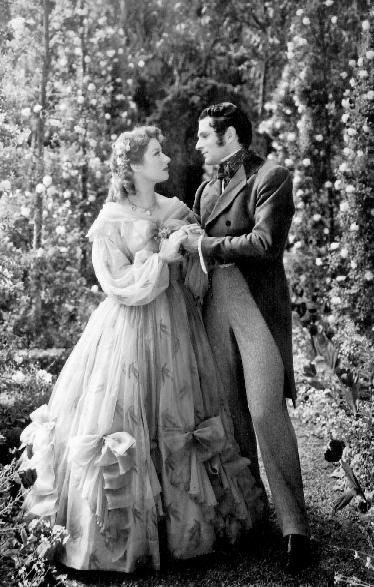
This is regarded by many as a fine and worthy adaptation of Pride and Prejudice. But let’s face it anything with Sir Olivier is perfect in my book🥰. Both these actors do a fine job portraying these classic characters. But look closer....what is she wearing?? Wait is that dress from the 1830-1840’s. Yes it is. Isn’t this is supposed to be 1813? Yes, yes it is. So what happened? Well movie studios, back in the golden age, were known to reuse costumes in an attempt to save on the bottom line. Since MGM had produced several movies set in the middle to late 1800’s up to that point and had plenty of costumes to therefore reuse, we have Elizabeth Bennet wearing a full style dress that would come into fashion years from when the book was set. However, this in no way takes away from the performance of the actors and the movie as a whole. Even the most strict historical accurate fans still watch and enjoy this film for what it is. Yet, when other adaptations of novels come along and choices in costuming and hair are made that are more “modern” and deviate somewhat from that time period, those films and shows are chided for not following the rules. Why? How is what the studios did back in the in 40’s to Pride and Prejudice different from what is done now? Why the double standard? Let’s skip forward to the 80’s and 90’s. We saw costume dramas stick very closely to the correct rules of dress and grooming. Several adaptations were delivered to our TV and movie screens that are now considered the gold standard- Jane Eyre, Pride and Prejudice, Sense and Sensability, Emma,etc. Majority of us still enjoy and praise these adaptations 20-30 years later. But I must admit that when I rewatch these now, there is a dated feel about them. Now don’t get me wrong, they are still wonderful but it is quite obvious that they were produced 20-30 years ago. The musical score, if it had one, was fairly basic. Nothing that really stayed with you. The costumes were fine and the hair was... OK. Again most of these things stayed the same from one adaptation to the next . What stood out in these movies and series was the acting! Regardless of what they wore or how their hair was styled, we loved these adaptations because of how the actor embraced these roles and delivered to us the audience a memorable version of a beloved character.
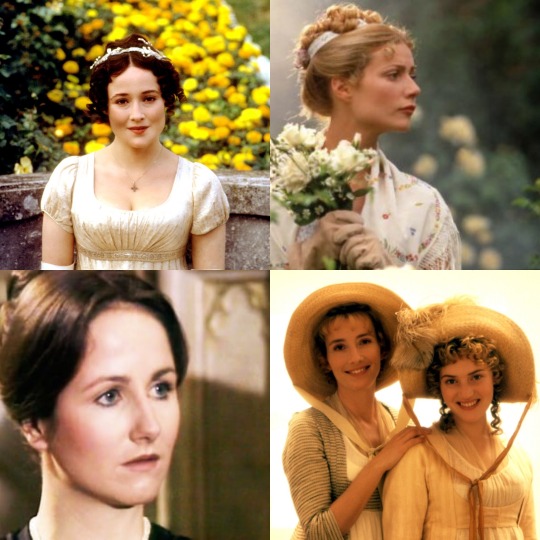
So as we entered the 2000’s, filmmakers, who love these stories as much as we do, decided that it was time to “update” the look and feel of a period piece. They wanted to reach a younger more modern audience that perhaps had never watched a classic period piece before. And there was nothing wrong with that! These directors wanted others to enjoy the classics as much as they did. But they were wise and realized that a fresh take was needed to entice and draw a new audience in. This could not be a costume drama that their mothers and grandmothers watched. No, they needed to appeal to a younger audience. Which is what ALL filmmakers do, regardless of the genre. It’s how the big and small screen survive. So out went the hair and wigs with the historically accurate styles. The costumes had a few more modern cuts to them but all in all stayed relatively the same. Some of the dialog had a few updates so that an audience with not much experience in 1800’s literature ( which let’s face it is majority of us) could understand. Musical scores were updated so as to play on our emotions and draw us deeper in the story. And the result- some very fine and worthy adaptations- Joe Wright’s 2005 Pride and Prejudice. Andrew Davies 2008 Sense and Sensabilty. Jim Hanlon’s 2009 Emma. Let’s just focus on one of these adaptations- 2005’s Pride and Prejudice.
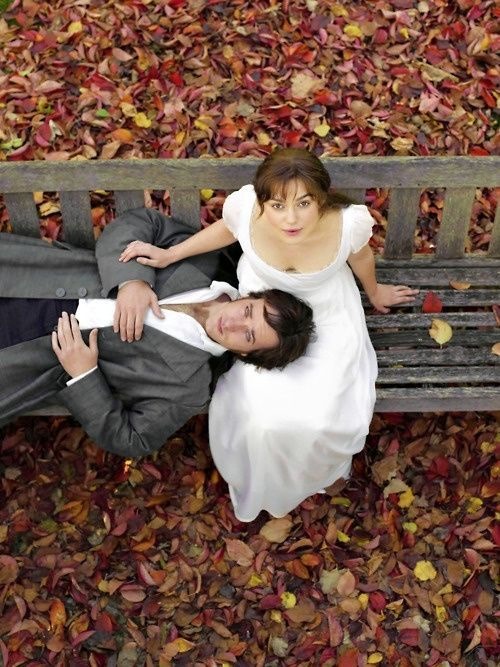
Kiera Knighly delivers to us the audience a fine portrayal of Elizabeth Bennett. But notice her hair. It’s down in some scenes.
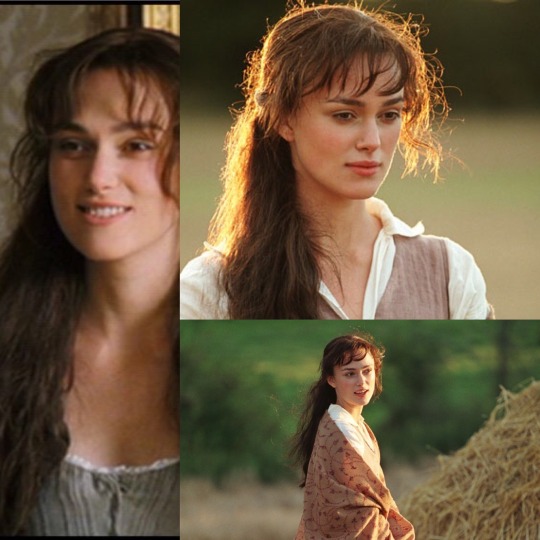
We had not seen this before in other adaptations yet here we have Lizzy approaching Netherfield with long flowing hair. Why? We as the audience need to connect with Elizabeth. Again remember- new audience, younger demographic. This tells us that she really doesn’t care what the opinions are of a certain Mr. Darcy and the Bingleys. She is being herself-walking to the house alone and not caring about the state of her tresses. Does this detract from the story and Kiera’s acting? No. It gave me the audience a new fresh way to appreciate her character. Joe Wright wasn’t trying to mimic adaptations of years past. Why should he? His Pride and Prejudice was a much needed change from that we had seen before. And guess what? It paid off. A younger audience who had never seen Pride and Prejudice came to love this movie and 15 years later this is still their go to PP. After all isn’t that what we all want? For more people to experience Jane Austen’s stories? Who says that they have to be portrayed the same way each and every time. Isn’t that kinda... boring? Predictable?

Now let’s skip ahead to 2019. If you have read my other two blogs you know where this is going. So if you don’t want to hear about my defense of Sanditon I suggest you turn back now.
Andrew Davies introduces to us a character of Jane Austen that has never been portrayed on the screen before-Charlotte Heywood.
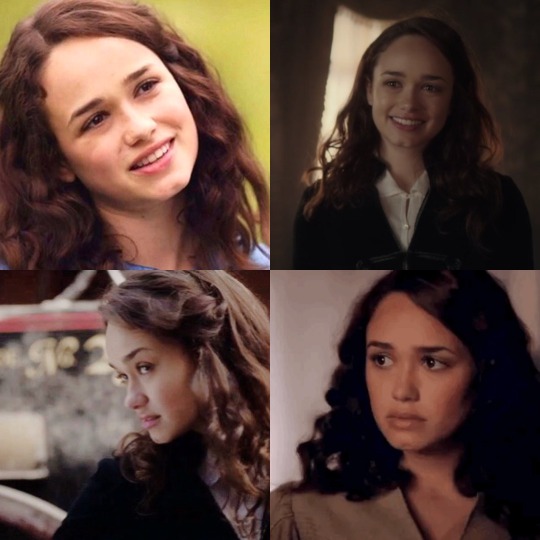
And as such we do not know who or what her character is like. We find out that at 22 she had never left home, having grown up on a farm with 12 siblings. That alone tells us that her appearance is going to be what some call “modern” and out of place but what I call practical and normal. Her father,while respectable and gentleman, is a farmer. She more and likely had chores like anyone else. Do you really think she had the time to care if her hair is pinned up. Uhh...nope. The first scene we see her in she is shooting rabbits! This tells us she is not Elizabeth Bennet or Marianne Dashwood or Anne Elliot. And Miss Austen wasn’t trying to write her as such. She is her own person. And as such will have things that set her apart from other Austen characters. As the series progresses we come to to learn she is practical, intelligent, sweet, but naive and inexperienced. Davies also decided to make a choice that would serve as her hallmark- her shoulder length hair that she wears down most of the time. Again, filmmakers have to appeal to their current audience. And again, like Joe Wright, he was hoping to get a younger more modern audience to tune in and enjoy a period piece or perhaps a Jane Austen adaptation for the first time. Frankly, this was a clever move on his part. He needed to show throughout the series that this adventure to Sanditon is truly unlike anything she has ever experienced. Charlotte is full of youthful exuberance with those doe-like eyes that are longing to experience life outside sleepy Willingdon. But remember, that while we love her, she has a lot to learn and is truly out of her depth at first around some of the situations and people she encounters. However, despite that she is true to herself- which is also a hallmark of all Jane Austen heroines. So as such there is no reason Charlotte needs to change her hairstyle when she comes to Sanditon. She is accepted as who she is by those around her. She is our Charlotte Heywood- using her ingenuity to help with the growth of Sanditon, trying to be a good friend, and exploring her new surroundings. Her hair is the least of anyone’s worries. And as an audience we find that Charlotte’s unpinned tresses make her approachable.Unpretentious. Human. More like us. Is there anything wrong with that? No. Being historically accurate is all and well, but when that is placed above all else in a series or movie it runs the risk of being just another adaptation. And that does not draw in a new, younger, more modern audience. Regardless of whether you agree with that statement or not, that is how the entertainment business is run today. So please if any readers are on the fence to watch this series because of some more modern uses in hair and grooming I ask that you to accept why the production crew made these choices and give it a try. As us fans wait on baited breath to see if another network will pick up our beloved Sanditon and continue with a second season-just remember you may get your heroine wearing her hair up. After all, Jane Austen characters usually go through a metamorphosis of some kind due to the need to adapt, grow, and perhaps even survive. Our Charlotte may find herself more grown up and guarded after a summer spent in Sanditon and this could well show in her appearance next time we see her... or not. I guess we will have to wait and see.
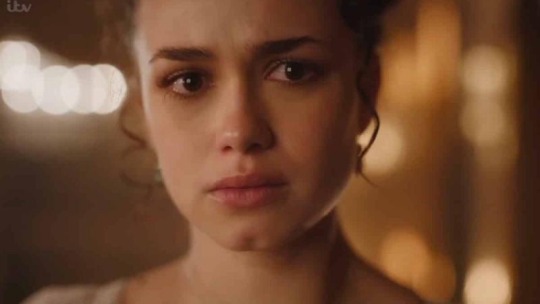
17 notes
·
View notes
Text
A great reading lists for teens, I've not read some of these but many sources say that they are great for teens. The top 15 ones have been listed below:
1. Harry Potter series by J. K. Rowling- You'll love all of these, especially Harry Potter and The Deathly Hallows. Some people do say that this is a childish book series, but I suggest you not to believe them, 90% people love these, those people are the other 10% and that's totally OK! Because every person is different and unique and their choices and likings are different from others. All parts of this series have been made into movies except for the play, Harry Potter and the Cursed Child.
2. The Hunger Games Triology by Suzanne Collins - You'll love this series if you're like, interested in this book stuff. I suggest you to at least read a sample before buying it. If you find it interesting, go for it! Movies have been made on the series too. There are three books in the series - The Hunger Games, Catching Fire, and Mockingjay.
3. The Fault In Our Stars by John Green - Well, this one is for 12 years above, or maybe 13 years above, but if you think you will find it interesting ... Go for it! It's actually good, I've read a sample. Read the sample before buying. It's quite funny too and emotional... It Has kinda everything. A movie has been made on this book as well.
4. Sherlock Holmes by Sir Arthur Conan Doyle - Oh my God ! This one is so thrilling and interesting as hell! People who like mysteries and detective stories, MUST read this! Yes, the vocabulary is too tough for 13-14 year old teens, but I was able to understand the stories as I read it with a dictionary near me to look up any words I've never heard. It's actually so awesome that you will be hooked up till you finish the book. A movie has been made on the books.
9. Dork Diaries by Rachel Renée Russell - Well, the Dork Diaries books are for girls only. They are so super awesome! I loved them. The reading level, 10 above or maybe 9 above. There are many books of Dork Diaries, not exactly a series, you can read any one first.
5. Twilight series by Stephenie Meyer- Well, well , well. So this one is a bit scary, it has vampire stuff, so I'd not suggest people below 15 to read it, but if you can take it, then... Ok! Go for it! There are four books, Twilight, New Moon, Eclipse and Breaking Dawn. Good book names and covers, that's like an impactful series, but, its still scary, so I'll read it when I'm 15. Movies have been made on the series as well.
6. Wonder by R. J. Palacio- This one is like so awesome! It's very emotional and has a great grip! I suggest this read for 10 above. Yes, the vocabulary is quite easy, and that's great! It changes our view of seeing everything for good! You will never be able to forget the main character, August, ever in your whole life. The author got the inspiration of writing this book by a little girl standing in front of an ice cream parlour. A part of the story even made me cry! But it was, really a great cry. I love books that make me laugh and cry. The book is so real! A Must read for everyone. A movie has also been made on the book. And yeah, PLEASE don't judge a book by its cover. I was going to make the same mistake but my mother told me to buy Wonder, and now I realise, that we should NEVER judge a book by its cover. I have never read a book like this.
7. Divergent series by Veronica Roth- My absolute favourite is Divergent! The best Sci-fi book I've ever read! There are 3 parts - Divergent, Insurgent, and Allegiant. So it's like the society is divided into 5 parts or factions based on different qualities. It is based on the futuristic world and the main character Beatrice or Tris Prior is such a great character. Veronica Roth knows how to build good character. Also, for girls, you are sure to fall in love with Four (Yeah, that's a name). Some more about divergent: When a child grows up, he/she has to choose to live their rest of their lives in any one of those societies. And maybe, just maybe, a person who has to/ is allowed to choose more that just one society is known as a divergent. I don't have much knowledge on this book, so if anyone can tell me about the plot, I'll be grateful. Seems like a really interesting plot, so try it once at least or read a sample before buying it. Movies have been made on the series.
8. Percy Jackson Series by Rick Riordan - I've not read the series, but my friends seriously LOVE it! And I've heard from other people too that it's an awesome series and a MUST read. So... I'm thinking of trying it next. It's about a boy named Percy Jackson who is the son of the Greek God Posiedon (the spelling might be wrong) and a demigod. Seems like a really interesting plot.
10. The Mill On The Floss by George Eliot- What to say about this book. It's so emotional! And the story, so lovely! I loved it. The reading level is 11 years and above. This one is a MUST read. It's a really beautiful classic. This one made me cry as well. A movie has been made on this book as well.
11. Little Women by Louisa May Alcott - Oh! Who doesn't know the name of this beautiful classic? This is a book, mainly revolves around family and may be boring for some, wasn't for me, but yeah, some parts were boring. But this sure was a great book. And yeah, don't go by the name, boys can also read this. A movie has also been made on the classic.
12. The Diary Of a Young Girl by Anne Frank- I've not read this book yet, but this book is actually great. People show such appreciation for Anne Frank's struggles during the Nazi occupation. She used to live in Germany. She wrote the diary when she was hiding during the same time. Alas, the diarist died at a very young age of 15. It is a must read for sure! I'm gonna read this after the Percy Jackson Series.
13. The Maze Runner by James Dashner - This book series is amazing. Yup, it has some violence but is a good read. My friends tell me that it is actually interesting. So...maybe I'll try it once. There are 5 books in the series - The Maze Runner, The Scotch Trials, The Death Cure, The Kill Order and The Fever Code. The series have also been turned into movies.
14. The Perks Of Being A Wallflower by Stephen Chbosky - I got the name of this book from Google and it says its great for teens. So... I'll read this once for sure. And maybe you should try it too.
15. Pride and Prejudice by Jane Austen - This is known to be a really good classic. Maybe, just maybe, its vocabulary is tough for 12, 13 and 14 year olds, as it is a classic. Jane Austen is considered to be the greatest Author of English after William Shakespeare, so this is another big reason to read classic book.
So that's it. Tell me how many of them you've already read or watched(movies) . When you've tried any of these, give me a review, please! Waiting for replies. And suggest me some great books for teens if you know any.
Below are the covers of some of the books. But still, remember, don't judge a book by its cover.










Bye for now friends. And yeah, 'THE NIGHT WHEN WE WERE KIDNAPPED' will unfortunately have to wait for now. But I'll be sure to post the next part of it as soon as possible. Please like my posts and follow me, but only if you like my work. 😊
#rj palacio#little women#the diary of a young girl#the diary of anne frank#pride and prejudice#harry potter#harry potter series#harry potter fandom#percy jackson#the hunger games#books to read#think about it#deep thoughts#twilight#hunger games#the maze runner
2 notes
·
View notes
Photo
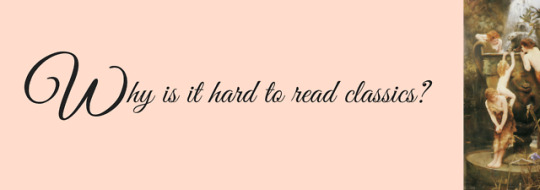
It’s time. You have to pick up that dreaded classic you have lying around. Maybe it’s Victor Hugo’s Les Miserables, or even worse, William Shakespeare’s Richard III. Those things look terrifying with all that fancy bindings and annotations. But you have to read it anyway, either because some lame English professor assigned it or because you want to be well-read. Either way, you know it’s going to be hard.
Why do we struggle so? Why do such books make even the most avid of readers tremble in their boots? What is the problem with these damned things?
It’s all about the context. Or, rather, about how most modern readers lack the context to understand and appreciate classics. The boring dictionary definition of context is: The circumstance or setting in which an idea or even can be fully understood. If you don’t have context, an idea — such as the ones in classics — are liable to be misunderstood or outright overlooked. We, in all of our modernity, lack context for many classics in several respects.
The Context of Prose and Style
Language evolves. Sentence structure shifts. Words fall in and out of fashion. Even word meanings metamorphose.
It takes only a quick survey of English literature to see how much can change in a few hundred years (and we’re not even getting into translations):
A wys wyf, if that she can hir good,
Shal beren him on hond the cow is wood,
And take witnesse of hir owene mayde
Of hir assent; but herkneth how I sayde.
— Geoffrey Chaucer, “The Wife of Bath” in The Canterbury Tales (1475)
This isn’t the work of a drunken five-year-old with atrocious spelling skills. It’s Middle English, a variant of English spoken after the Norman Conquest in 1066 and before the 16th century. It bears some resemblance to modern English, but it’s gosh-darn hard to read without annotations (and alcohol).
To be, or not to be: that is the question:
Whether ’tis nobler in the mind to suffer
The slings and arrows of outrageous fortune
Or to take arms against a sea of troubles,
And by opposing end them? — To die, — to sleep.
— William Shakespeare, Hamlet (1603)
Now that we’re in Modern English — yes, Shakespeare is modern — the spelling is improving, but it’s still tough to get through. Shakespeare’s heavy use of figurative language flummoxes us, literal-minded modern readers. No, those slings and arrows aren’t real!
The ledge, where I placed my candle, had a few mildewed books piled up in one corner; and it was covered with writing scratched on the paint. This writing, however, was nothing but a name repeated in all kinds of characters, large and small — Catherine Earnshaw, here and there varied to Catherine Heathcliff, and then again to Catherine Linton. In vapid listlessness I leant my head against the window, and continued spelling over Catherine Earnshaw — Heathcliff — Linton, till my eyes closed; but they had not rested five minutes when a glare of white letters started from the dark, as vivid as spectres — the air swarmed with Catherines; and rousing myself to dispel the obtrusive name, I discovered my candle wick reclining on one of the antique volumes, and perfuming the place with an odour of roasted calf-skin.
— Emily Brontë, Wuthering Heights (1847)
Compared to Shakespeare, Brontë seems straightforward, except for one thing. Like many other 19th century writers, she uses long, flowing, and descriptive sentence structure that seems incongruous compared to today’s staccato sentence structure.
Who controls the past controls the future. Who controls the present controls the past.
— George Orwell, Nineteen-Eighty-Four (1949)
Now that we’re in the really modern part of Modern English, things are so much better. Orwell adopts the simpler, more direct style that we’re more used to. Whew! (Note that simple and straightforward prose doesn’t always translate into simple and straightforward meaning.)
Not all troublesome prose comes from old and dead white folks. Some contemporary authors eschew plainness for some flair in their prose. Whether you find that dazzling or confounding is up to you.
…I give you the mausoleum of all hope and desire… I give it to you not that you may remember time, but that you might forget it now and then for a moment and not spend all of your breath trying to conquer it. Because no battle is ever won he said. They are not even fought. The field only reveals to man his own folly and despair, and victory is an illusion of philosophers and fools.
— William Faulkner, The Sound and Fury (1929)
Faulkner’s convoluted prose forces the reader to focus single-mindedly to follow along. Confusing as it may be, Faulkner’s marriage of the stream-of-consciousness writing of modernists and descriptiveness of Romanticism give a certain élan to his writing. Just don’t read him before bed as you’ll fall asleep without any memory of what you’ve read.
Now a member of the company seated there seemed to weigh the judge’s words and some turned to look at the black. He stood an uneasy honoree and at length he stepped back from the firelight and the juggler rose and made a motion with the cards, sweeping them in a fan before him and then proceeding along the perimeter past the boots of the men with the cards outheld as if they would find their own subject.
— Cormac McCarthy, Blood Meridian (1985)
McCarthy’s combination of complex sentences and a disdain of punctuation gives his writing an air of inscrutability. Love or hate him, you have to admit that the dude got a style.
The Context of Historical Settings and Culture
Most authors write for their contemporaries, not for some unknown high school student 100 years in the future. They assume that their reader knows the social and cultural contexts. Once a book survives the test of time, this assumption fails.
Jane Austen’s books serve as a good example of how our ignorance of the social mores of early 19th century genteel society can lead the reader to miss allusions that would’ve been obvious to a contemporaneous reader.
“Are any of your younger sisters out, Miss Bennet?”
“Yes, ma’am, all.”
“All! What, all five out at once? Very odd! And you only the second. The younger ones out before the elder ones are married! Your younger sisters must be very young?”
“Yes, my youngest is not sixteen. Perhaps she is full young to be much in company. But really, ma’am, I think it would be very hard upon younger sisters, that they should not have their share of society and amusement, because the elder may not have the means or inclination to marry early. The last-born has as good a right to the pleasures of youth at the first. And to be kept back on such a motive! I think it would not be very likely to promote sisterly affection or delicacy of mind.”
“Upon my word,” said her ladyship, “you give your opinion very decidedly for so young a person. Pray, what is your age?”
“With three younger sisters grown up,” replied Elizabeth, smiling, “your ladyship can hardly expect me to own it.”
Lady Catherine seemed quite astonished at not receiving a direct answer; and Elizabeth suspected herself to be the first creature who had ever dared to trifle with so much dignified impertinence.
“You cannot be more than twenty, I am sure, therefore you need not conceal your age.”
“I am not one-and-twenty.”
— Jane Austen, Pride and Prejudice
A reader unaware of the importance (and meaning) of “being out in society” in Georgian gentry wouldn’t note how uncouth it was to have five sisters out all at once, a serious social misstep by the Bennets. (And no, “coming out” doesn’t mean the same thing as it does today.) They would also have missed how tactless it was for Lady Catherine to harp on this point and Elizabeth’s impertinence for evading Lady Catherine’s question. This is why an unschooled reader would overlook the biting satire in Austen’s novels, which is a horrible shame.
Many classic novels attack contemporaneous cultural, religious, and social conventions. If you don’t understand the norms under attack, you lose context to why the novel was so daring, so bold.
I made this mistake with Jane Eyre. Upon my first reading at 13, I dismissed it as melodramatic slop. When I revisited it at 18, I saw how Charlotte Brontë criticizes the prevailing religious belief of charity and how remarkably independent Jane Eyre is, a shocking thing for a Victorian woman. I, however, still think that the book has too many dei ex machina (overly convenient plot twists).
The Context of Narrative Conventions
Following or breaking it, many classics take a stance on narrative conventions. Thomas Hardy embraces the pastoral and tragic narratives in Tess of d’Urbervilles as James Joyce bucks the Realists’ more removed narratives with his stream-of-consciousness writing.
To understand a book’s attitude toward narrative conventions is to understand why certain writing, plot, or characters elements exist (or disappear) from a novel. These expectations ease the way for your reading. Really!
When I began reading Tess of the d’Urbervilles, I knew that it was a pastoral tragedy, which prepared me for two important things. First, since it was a pastoral, I knew Hardy would describe the setting to such detail that the town(s) would become characters in their own rights. So I was prepared for passages like these which would seem unnecessary and boring to the average modern reader (fairly enough):
The village of Marlott lay amid the north-eastern undulations of the beautiful Vale of Blakemore or Blackmoor aforesaid, an engirdled and secluded region, for the most part, untrodden as yet by tourist or landscape painter, though within a four hours’ journey from London.
It is a vale whose acquaintance is best made by viewing it from the summits of the hills that surround it — except perhaps during the droughts of summer. An unguided ramble into its recesses in bad weather is apt to engender dissatisfaction with its narrow, tortuous, and miry ways.
— Thomas Hardy, Tess of the d’Urbervilles
Second, since Tess is a tragedy, I prepared myself for many frowny-face moments. If you go into a Hardy expecting a happy ending a la Pride and Prejudice, you’ve taken a wrong turn in the 19th-century bookstore.
The Context of Symbolism
When you’re a high school student studying The Great Gatsby, it might seem like the teacher is inventing all those meanings from rivers and currents to justify their paycheck. You think, “Damn it, why can’t a boat just be a boat?”
English teachers’ flights of fancy aside, symbolism is a real thing. Under the best of circumstances, symbolism deepens existing themes and ideas already present in the novel. Problems begin when you don’t recognize the signs of symbolism.
Here’s an example: The last lines heard ‘round the world:
Gatsby believed in the green light, the orgastic future that year by year recedes before us. It eluded us then, but that’s no matter — to-morrow we will run faster, stretch out our arms farther…. And one fine morning-
So we beat on, boats against the current, borne back ceaselessly into the past.
— F. Scott Fitzgerald, The Great Gatsby
Scholars have quarreled over the meaning of this passage for decades, showing that there is no purely correct answer. Therein lies the subjectivity of literary analysis — but it remains vital that you understand the purpose of symbolism and are able to recognize it. (Hint: watch for recurrent motifs and ideas.)
The Context of the Original Publication (or Performance)
This oft-overlooked context can massively alter your reading of a classic. Many classics weren’t originally presented in the format in which it is read today. Chaucer’s The Canterbury Tales was performed in verse. Shakespearean plays were meant for the stage, not small English classrooms. And so it goes.
But those are well-known examples. The examples nobody talks about are these 19th-century epics, most of which were originally published in a serialized format where the author was paid by the word (Anna Karenina, A Tale of Two Cities, The Count of Monte Cristo). This small detail completely alters the structure and flow of those stories. The serialized format and the pay scheme encouraged such writers to write more, more, and more. This is why Anna Karenina clocks in at almost 1,000 pages filled with descriptive passages of Levin moving grass. The format also means that the author didn’t consider the “flow” of narration from chapter to chapter, creating a disjointed reading experience as the story hops from one perspective to another. These stories were never conceptualized as a novel in today’s sense. You might even benefit from reading in small bursts, just like these newspaper readers did more than 100 years ago.
If you happen to read a classic out of its original publishing context, be mindful of how that’ll affect your experience. To get the fullest and richest experience, you might want to revert back to the original storytelling form, such as watching a Shakespearean play or movie. (I recommend Much Ado About Nothing, just ignore Keanu Reeves.)
Context is everything. Without the right context, many classics appear inscrutable and downright mystifying. Most of us aren’t born with a knowledge of Middle English syntax and deep knowledge of manners among the English gentry during the Georgian era.
Where does that leave us, the befuddled readers? It leaves us with the hard reality that we need to investigate the context in which the classic was written. That means glancing at a Wikipedia page about the French Revolution before (and during) reading Les Miserables. It also means preparing yourself for a fantastical twirl through time in a South American village before you read One Hundred Years of Solitude. With some preparation, you can actually appreciate those dusty little classics.
N.B. I adopt the more expansive definition of classics as notable works of literature due to their excellence and significance, rather than the more traditional definition as pre-17th-century works of literature.
#classical literature#topic#classics#classic lit#classic literature#count of monte cristo#jane eyre#pride and prejudice#great gatsby#jane austen#les miserables#context#english#literature#studyblr literature#narrative#shakespeare#this is my first post#im sorry its so long
1K notes
·
View notes
Text
Precarious Love : The Costs of Agency in Regency Literature
“Women are supposed to be very calm generally, but women feel just as men feel; they need exercise for their faculties, and a field for their efforts as much as their brothers do; they suffer from too rigid a restraint, too absolute a stagnation, precisely as men would suffer.” - Jane Eyre
For many women, the definition of personal power includes the ability to maintain autonomy and ownership over their life choices, their physicality, and their personal boundaries. Unlike centuries of women before us, we are legally capable of supporting ourselves in essentially any way we choose. First World women are no longer obligated to be dependent on the men in their lives for identity or security, a shift that has adjusted and balanced out the deep vulnerability and hazards inherent in being a woman.
Many of us take this level of agency for granted and read classic literature through this lens. We swoon over romances and love stories while forgetting that, for authors such as Jane Austen or the Brontë sisters, romance actually came second to economic and physical survival. The female protagonists of their novels are not just concerned about love but must gamble on their prospects of security and safety while navigating an unmistakable power imbalance, tipped distinctly in favor of the men. Classic literature written by women and about women often details the struggle to maintain personal autonomy in a world where women are entirely dependent on the good graces of men. These stories make an impact because their protagonists are portrayed fighting for their own dignity while having to navigate their survival through one of the only “respectable” avenues open to them — marriage.
Jane Austen’s Pride and Prejudice touches on the risk of poverty the Bennet sisters face should they remain unmarried. That tension heightens the shock of Elizabeth’s turning down Darcy’s initial proposal. Darcy feels little need to accommodate Elizabeth’s own wants or desires because he instinctively knows she has very little choice in how her life plays out should she remain single. When she does reject him, she does so knowing her vulnerability to the whims of the generosity from extended family has increased exponentially. What Austen does not detail, however, is what those risks include. Her stories remain comfortably in upper society, and her women have the leeway to assert themselves without putting themselves too far in the way of direct harm.
Charlotte Brontë is different. Everyone who loves gothic romance knows the plot of Jane Eyre - feisty governess falls for brooding hero, sparks fly, tragic secret is revealed, despair sets in, followed by eventual reconciliation. What can easily slip through the cracks, however, is the precarious position Jane finds herself in as soon as that tragic secret is revealed. Jane Eyre stands next to Austen’s Elizabeth in her conviction that she matters, that her self respect is worthy; she lays claim to the right to be treated in accordance to that worth. But unlike Elizabeth, she is a working girl with no known living relatives, with limited life experience, no resources, and living in a house shared with her employer and former fiancé—a man whose past is littered with mistresses he discarded as soon as they no longer pleased him. When Elizabeth, as a decently high-status woman of reputation, initially turns Darcy down, she risks genteel poverty. When Jane, a lower class unknown, rejects the idea of bigamy or becoming Rochester’s mistress, she finds herself threatened with rape.
This is, I believe, the actual crux of the novel. When Darcy is confronted by Elizabeth’s self-respect, he is jolted into seeing her as a true equal and begins to adjust accordingly. In contrast, Brontë establishes this equality for Jane early on. Although Rochester has a history of pettiness, emotional manipulation, and self-absorption, Jane’s commitment to her own value, humanity and self-worth has already forced him to view her as his intellectual equal. By the climax of the novel, Jane has already resisted his efforts to reshape her into the colorful angel of his dreams, and, in a world where women were expected to acquiesce to their husbands without question, has insisted upon remaining herself even as his fiancee. “I will not be your English Celine Varens…. I will furnish my own wardrobe…and you shall give me nothing but your regard: and if I give you mine in return, that debt will be quit.” With his previous mistresses, Rochester amused himself with living distractions. With Jane, Rochester grows to love and respect an actual, fellow human being.
But unlike Elizabeth’s ability to hold her head high and send Darcy on his way, intellectual equality with Rochester does not change the fact that Jane is a lower class governess with few rights, something Rochester is keenly aware of. One of the most famous quotes of Jane Eyre, “I care for myself. The more solitary, the more friendless, the more unsustained I am, the more I will respect myself…. there I plant my foot,” is Jane’s internal response to Rochester’s attempts to blame and manipulate Jane into taking responsibility for his potential self-destruction should she persist in refusing his offers. Seeing her resolve nearly sends Rochester over the edge:
“Never,” said he, as he ground his teeth, “never was anything at once so frail and so indomitable…. I could bend her with my finger and thumb, and what good would it do if I bent, if I uptore, if I crushed her?.... Whatever I do to its cage, I cannot get at it…. If I tear, if I rend the slight prison, my outrage will only let the captive loose. Conqueror I might be of the house, but the inmate would escape to heaven before I could call myself possessor of its clay dwelling place. And it is you, spirit - with will and energy, and virtue and purity - that I want, not alone your brittle frame… seized against your will you will elude the grasp like an essence.”
No one would have come to Jane’s rescue had Rochester decided to take revenge for his disappointment. He knew it and Jane knew it. But Rochester also knows that although Jane is physically powerless, he cannot escape the fact she is far more than something to be used and tossed aside. He has seen her as an independent individual, and, because he has seen her deep humanity, he cannot go back. He lets her go, unharmed.
Once Jane and Rochester are reunited at the end of the novel, Jane has inherited enough wealth that she now has the ability to walk away from any situation she pleases without personal cost. Should she marry now, it will be entirely her own decision. She is no longer dependent on a husband or a deeply vulnerable governess position to support herself and can choose to live her life as she pleases. In this context, Rochester confesses that he absolutely did intend to rape her. “I did wrong: I would have sullied my innocent flower - breathed guilt on its purity.” He repents, she forgives, and, knowing she is now secure in both herself and in his genuine respect, she steps into his life as his wife. It is doubtful that Elizabeth shared cultural power with Darcy outside of the confines of their home, but Rochesters’s new blindness spares him the cultural shame that would have otherwise followed his sharing control and power with Jane. Brontë writes their story in a way that makes shared power in marriage palatable to an unfamiliar audience, and, potentially, eventually accepted as normal.
Jane Eyre is widely regarded as a masterpiece, showcasing female agency in a world where such things were relatively unknown, but often we find the happiness and satisfaction of the story in the triumphant, “Reader, I married him.” But this is not what Brontë is actually going for. The marriage plot was a commonly relatable, easily digestible storyline; Jane’s fierce independence throughout was not.
Changing cultural narratives takes years of careful work, framed in non-threatening ways, in subversive methods, easily misunderstood or overlooked. Brontë worked to change the culture in the only way she could: introducing a new concept into a known narrative, marriage, using a high-risk scenario, vulnerable governess and powerful master where abuse was essentially expected, and shifted that story instead into a marriage of intellectual equals. Brontë introduced England to a quietly subversive notion—women are human and deserve the same respect and regard as their male counterparts. Jane’s refusal to compromise exposed her to severe risk and harm, something well known to Brontë’s female peers, but also granted her something most could only dream about: a marriage of mutual regard, respect, and shared power. What a concept.
6 notes
·
View notes
Text
A common theme during the Romantic time period was writing that focused on nature. A lot of works that were studied particularly in this class from this time period had very apparent emphases on nature, frequently having it be the subject of the piece. Austen’s Pride and Prejudice differs from these other writers’ works because her use of nature is not as evident and requires some analysis. Austen’s main use of nature and landscape is used in the characterization and development of her protagonist, Elizabeth Bennet. Though some uses may be subtle, they are completely intentional and help the reader better understand not only Elizabeth as a character but her also her actions and turning points in the novel.
The picture in the top right corner was chosen to represent the Bennet family home in the country. This is important because their small, rustic home represents Elizabeth’s family’s social class, which is a big factor in her upbringing and identity. As opposed to Mr. Darcy and the Bingleys who live in the city and are extremely wealthy, Elizabeth is poor and has an entirely different view of life. This in turn ties in with the bottom left picture in the mood board. This is a picture of a woman walking through the fields in the country and is symbolic of Elizabeth’s walk on foot to Netherfield. This is a major insight in the novel to Elizabeth’s social upbringing but also to her character and strength as a woman. Her willingness to walk all that way to see her sister rather than take a horse or carriage like many other women would at that time speaks for itself. While her sister Jane, had the same upbringing, this shows the differences between the sisters’ makeup. Jane is frail and fragile. She gets very sick from riding on horseback over to the Bingleys in the rain and becomes too ill to come back home. Elizabeth wants to be with her sick sister and does not even hesitate to come to her aid even if it is a three-mile walk away. Elizabeth says herself “the distance is nothing when one has a motive”(Austen, 33). In the picture there is no path and that’s symbolic of Elizabeth’s independence and not needing a path to follow at that particular moment or in life in general. This shows her strength and determination to not be afraid to deviate from a common route and create her own path in life even if it isn’t easy.
The source “The BBC’s Pride and Prejudice: Falling in Love Through Nature” addresses the importance of this walk to Netherfield as well. It states that “Elizabeth’s fondness for walks and association with the outdoors carries important implications for her character not just in terms of temperament, but also in terms of social standing.” In the novel she is said to have been running through puddles and showing up to the Bingley house wet and muddy and looking wild. Miss Bingley makes a comment on her arrival saying “It seems to me to shew an abominable sort of conceited independence, a most country town indifference to decorum” (Austen, 36). This part being included in the novel is what shows the difference in social class and typical behavior of a woman at this time that Lady Catherine, the Bingleys, and Mr. Darcy are accustomed to as opposed to Elizabeth’s actions.
Socially during this time a woman’s place was in the house. They were expected to be quiet, reserved, and be in the search of a potential suitor. This is exactly what her mother expected of Elizabeth and her sisters but is something that she did not follow. After her walk to Netherfield, it is clear to the reader that Elizabeth is in no sense prim and proper or a typical woman at this time. Elizabeth instead is like nature. She is free-spirited, down to earth, and wholesome. Though she may not be as pretty as Jane and maybe a little rough around the edges, she has her own sense of beauty. She behaves naturally, saying and doing whatever she feels and never tries to be anything she is not. She says what she thinks and is unapologetically herself. This relates to the bottom right picture on the mood board, which is an image from the movie. In this image and throughout the whole book Elizabeth is imagined to look and dress naturally and wear simple, earthy clothes. She is not over the top and her dress and appearance is not something that is important to her character.
Going off of the source, “The BBC’s Pride and Prejudice: Falling in Love Through Nature”, Elizabeth has many other times where she walks off into nature, though they are not as significant as her walk to Netherfield. The book mentions, “not a day went by without a solitary walk, in which she might indulge in all the delight of unpleasant recollections” (Austen, 206). These walks are a staple for her character and usually were where she would go to find an outlet or a source of comfort. For example, in the book, she runs off into nature after Mr. Collins proposed to her, after an unpleasant encounter with Lady Catherine, and after she received the horrible news that Lydia had run off. Elizabeth’s fondness for walks and nature is represented by the picture in the middle row on the far left side of the mood board. This picture is of a woman holding leaves in her hands and is meant to show Elizabeth’s love for nature and represent the comfort she finds surrounding herself in it.
The top left picture is what is described as Pemberly and symbolic of how powerful the effects of landscape and nature have on an individual. Elizabeth’s visit to Pemberly is the turning point for her in the novel. “Looking at the Landscape in Jane Austen” says, “the sequence of descriptions in the chapter creates a sense of ascent, multiplicity, and expansion which defines not only the landscape but also the widening of Elizabeth’s vision of Darcy, and the increasing intensity of her feelings.” Here she falls in love with Darcy’s taste for nature. Austen’s description of his home is exquisite and Elizabeth is in awe saying, “she had never seen a place for which nature had done more, or where natural beauty had been so little counteracted by an awkward taste” (Austen, 235). It is through her visit to Pemberly and seeing the upkeep and simplicity of the space where her feelings toward Darcy have changed. Elizabeth’s view of the “landscape suggests a process of social discovery or corrected perception” (Bodenheimer). The image of them holding hands and then them face to face on the mood board is meant to represent the change of attitude and passion after the visit to Pemberly. The image of them holding hands was when they had danced together for the first time and she viewed him as condescending and arrogant. Afterward seeing his home, she sees that she had misjudged him and loves this man and wants to be his wife. Them face to face and the two rings symbolize their new relationship that has formed and the future that they will spend together.
Nature represents who Elizabeth is in terms of social class, but also her personality and where she finds her freedom and comfort. Austen’s use of nature and landscape not only helps the reader better understand who Elizabeth Bennet is, but also how she changes throughout the story. This is evident with the power of landscape at Pemberely which completely changes her view of Darcy. Elizabeth even said herself that before she thought of Darcy as “the last man in the world whom I could ever be prevailed on to marry” (Austen, 188). One visit to Pemberly completely changed everything.
Citations:
Austen, Jane. Pride and Prejudice. New York: Penguin Classics, 2003. Print.
Bodenheimer, Rosemarie. “Looking at the Landscape in Jane Austen.” Studies in English Literature, 1500-1900, vol. 21, no. 4, 1981, pp. 605–623. JSTOR, www.jstor.org/stable/450229.
“The BBC's Pride and Prejudice: Falling in Love through Nature.” Exposé Magazine, projects.iq.harvard.edu/expose/book/bbc%E2%80%99s-pride-and-prejudice-falling-love-through-nature.
1 note
·
View note
Text
Collision - Roger Taylor x OC, Part I
This is my first time writing any fanfiction and I’m a little nervous to post it. I don’t even know if anyone will read this. If you do, I’m already thankful and even more so, if you like it. Feel free to tell me!
I think this will have multiple parts, so stay tuned!
I got the idea from this post.
Summary: In March 1974, Roger and Elaine (OC) meet on the train to Manchester and due to a malfunction, it stops in the middle of nowhere and they’re forced to spend the whole day together.
Warnings: none lmao this is kinda boring

Elaine’s POV
Euston station was as busy as ever as I walked down the platform. The train’s doors had just opened, and everybody was eager to be the first one to board it. I pushed past a family with two children who were complaining about having to carry their own luggage and tried to get as close to the doors as possible without bumping into anyone. My large backpack weighed heavily on my shoulders, as I had packed for several days. I clutched its straps tightly as people rudely pushed me out of the way.
When I finally got onto the train, nearly all seats were taken and I was starting to feel frustrated until I spotted a compartment with only one passenger inside. I hesitantly pushed the door open, causing a young man with long blond hair and blue eyes to look up.
“Excuse me, but are these seats taken?”, I asked, gesturing towards the three empty spots.
The man seemed to think for a moment, an unreadable expression on his face. He scrunched his eyebrows and bit his lip, before sighing slightly. Altogether, he didn’t seem very pleased about my presence, and I was about to turn around and leave when I heard the sound of his high-pitched voice.
“I suppose not.” He gave me a small but charming smile, which I hesitantly returned as I closed the compartment door.
I took a seat across from him, subtly stealing glances while I placed my backpack next to me. He had delicate features, framed by shoulder-length blonde hair that he kept pushing out of his eyes. There was a notebook in his lap, one leg crossed over the other as he tapped his pen against the page in a steady rhythm. He seemed deep in thought, his bright blue eyes far away as he gazed out of the window.
The noise I made opening my backpack and taking out a book seemed to bring him back to reality, his gaze focusing on my face. I awkwardly cleared my throat and blushed slightly, which he acknowledged with a smirk.
I tore my eyes away from his face, opening the book where I had left off the night before. I had only read a few paragraphs when I heard his pleasant voice pipe up again.
“Is it good?”
“Pardon me?” I asked confusedly, looking up into his eyes.
“The book you’re reading”, he clarified. “Is it any good?” He was still wearing that all too attractive smirk on his lips as his eyes never left my face.
“It’s Jane Austen, of course it’s good”, I answered with a small laugh, playing with the green ribbon that had previously marked my place in Pride and Prejudice, one of my favourite novels.
“Never cared much for classics”, he admitted with a shrug of his shoulders.
“I bet that’s only because you’ve had to read them for class, innit? Books are never good when you’re forced to read them”, I said, still nervously twirling the ribbon between my fingers.
“You might be right, but I’m not a great reader, anyway. Think it’s a waste of my time”, he objected playfully and grinned at me.
I couldn’t help but smile wider. “Then what do you like to do instead?”, I inquired and found myself genuinely interested in this stranger’s pastimes.
“Music. I’m a musician”, he revealed proudly, obviously anticipating my reaction.
At this point, I was officially intrigued. I discreetly closed my book and put it aside, knowing I wouldn’t be able to focus on its story anyway.
“What kind of musician?”
“I’m a drummer. I also write songs. My name’s Roger, by the way.” He looked at me warily, as if expecting a certain response to his statement.
His name didn’t ring any bells and I wondered if it should have. I studied his face again, looking for familiarity as another smile grazed his lips.
“I’m El”, I said simply. “That’s short for Elaine.”
“Well, Elaine,” I liked the way my name sounded coming from his lips. “What do you do when you’re not reading?” Roger was still tapping his pen against the notebook, exuding nervous energy.
“I, uh, work in a café”, I mumbled, suddenly embarrassed after knowing about his profession.
“You think I could stop by sometime, get some free coffee?”, he asked cheekily, his blue eyes scrunching up slightly.
I happily returned his grin and nodded. “I’d like that.”
Seeming pleased with my answer, he continued: “It’ll be a while, though. I’m on tour with my band for another month or so. Our next show is in Manchester.”
“Then how come you’re not traveling with them?”
My question seemed to touch a nerve, as Roger frowned softly and his easy grin vanished as if it had never been there in the first place.
“I’m afraid they’re not very happy with me right now”, he admitted, biting his lip and looking genuinely upset. “I needed some time to cool off.”
“Can I ask why?” The question had left my lips before I could give it a second thought.
“They have a problem with my lifestyle”, he told me with a crooked smile.
“And what kind of lifestyle is that?”, I asked teasingly, coming up with a few ideas of my own.
“Oh, you know. Rock ‘n’ Roll and all that”, Roger answered vaguely, not meeting my gaze.
“So... girls, parties, drugs, the like?”, I clarified bluntly, taking him by surprise.
“Something like that. The thing is, I’m not the only one leading that lifestyle. You should see what Freddie gets up to when he’s had a few drinks.” Roger rolled his eyes, perhaps to conceal his anger in the face of this hypocrisy.
“Why are they mad at you then?”, I asked cautiously, not wanting to make him uncomfortable.
“They say I’m choosing that lifestyle over the music, that I’ve lost focus.” He seemed angry recalling his bandmates’ words. “I didn’t like hearing that, so I, uh, sort of lashed out and we fought”, he told me, scratching the back of his head almost bashfully. “I’ve got quite the temper.”
“Well, a fault confessed is half redressed”, I answered optimistically. “I’m sure they’ll come around.” Even though I didn’t know a single one of Roger’s bandmates, I had a feeling he would be hard to resist once he had set his mind onto earning their forgiveness.
“I can’t believe you use proverbs”, Roger said and erupted into laughter.
“What do you mean? There’s definitely some truth to that”, you argued defensively.
“I’m not disputing that, love.” The pet name slipped from his lips easily, causing me to look up at him with a surprised smile, which he returned teasingly.
Our conversation paused for a few awkward moments, in which I tried to hide the growing blush on my cheeks from his view by looking down.
It hadn’t been quite for even three minutes before Roger continued speaking, apparently not able to busy himself with his notebook. “So what brings you to Manchester?”
“I grew up there. Moved to London when I was 18. I’m, uh, visiting my family”, I mumbled, not looking him in the eyes.
Roger seemed to sense that this was a touchy subject for me, as he carefully asked his next question. “Is there a special occasion?”
My throat went dry and I bit my lip, debating whether or not I should tell him. I wasn’t usually one to share this much personal information with a stranger, but then again, strangers didn’t usually make me feel the way he did.
“My nanny, Jane, she’s really sick. She was like a mother to me and I haven’t seen her in three years, so when I got the news, I knew I had to come immediately.” I tried to keep all emotion out of my voice, but I could tell by its little cracks that I hadn’t succeeded.
Roger’s expression instantly changed from careful to empathetic as he moved his hand towards my arm in an effort to comfort me, but stopped halfway when he noticed the guarded look in my eyes.
“I’m really sorry about your nanny”, he said genuinely, his blue eyes full of concern.
I was touched by his sympathy and nodded, forcing a smile. “I don’t want to think about it right now. Tell me about your band.”
Roger’s face immediately lit up, a passionate expression in his eyes. “Well, we’re called Queen and I’m the drummer... then there’s Freddie, our lead singer, and Brian on the guitar. Can’t forget Deaky, our bassist. His name’s John, actually, but only his mum calls him that”, he rambled lively, still smiling excitedly. “Are you sure you’ve never heard of us? We’re great, really.” He sent me a cheeky wink, obviously aware of the effect this had on me.
“And modest, too!”, I laughed.
“You should come to a show sometime. We always go out for drinks afterward and that’s when the craziest things happen. Like that one time when Brian...” Roger’s warm voice chased all thoughts of Jane’s illness from my mind as I listened to his stories of adventurous nights filled with drinks and laughter. I sighed contently and leaned my head against the window, eyes still fixed on his face and the train ride suddenly seemed much easier to endure.
#roger taylor#queen#queen band#roger taylor fic#roger taylor x oc#queen band fic#borhap#bohemian rhapsody#roger taylor imagine#ben hardy#ben hardy!roger taylor#bohemian rhapsody fic#roger taylor x reader#roger taylor fluff#borhap fluff#borhap fic
2 notes
·
View notes
Text
The Battle for Hallmark’s 2018 Christmas Queen
As the festive viewing season draws to a close, there’s one very important job left to do - and that’s to crown Hallmark’s Queen of Christmas 2018!
The two contenders are of course Candace Cameron Bure and Lacey Chabert:
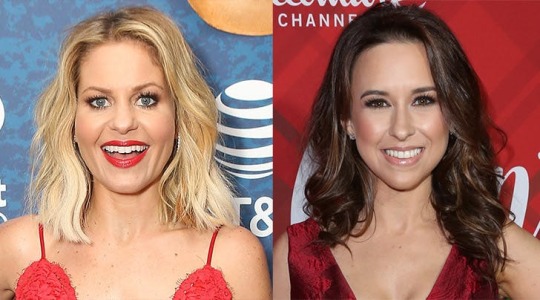
Here’s a little background on these shiny-haired, shiny-toothed lovelies to kick us off:
- Both grew up on TV - Candace on Full House and Lacey on Party of Five.
- Candace has been a Christian since the age of 12, and a Republican for an unspecified period of time. Lacey is a life-long Bible fan, who endorsed John McCain’s campaign in 2008.
- Candace and Lacey have each appeared in seven Hallmark Christmas movies. SEVEN!
I think you’ll agree that we begin this battle with two evenly-matched one-woman Winter Wonderlands. So without further ado, let’s see how they stack up after this year’s offerings...
Whose movie has the best name?
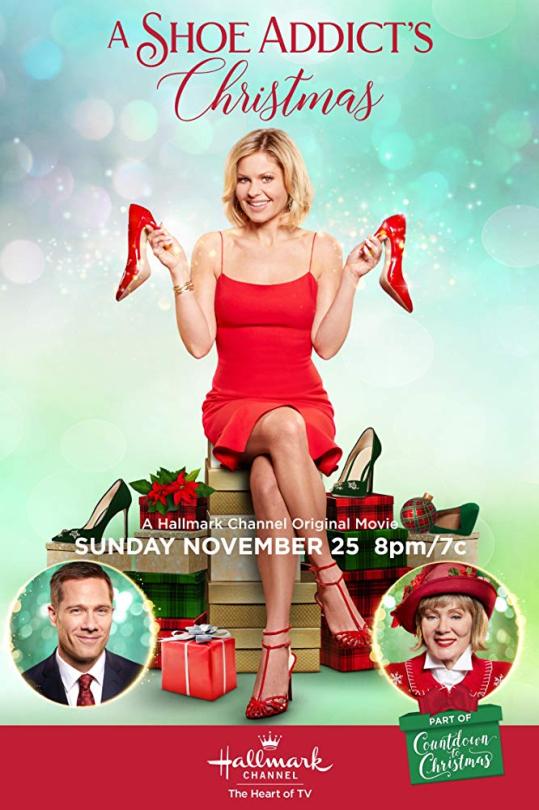
A Shoe Addict’s Christmas is a very edgy, grungy name, what with its shocking reference to the sin of addiction. It certainly hooked me.
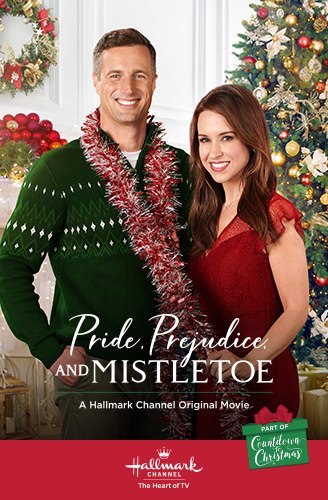
Pride, Prejudice & Mistletoe goes for the classic literature reference - being Hallmark’s second movie of this year’s crop to claim to be based on Jane Austen’s 1813 novel.
These are both undeniably with-it approaches to naming, and therefore I declare this round a tie!
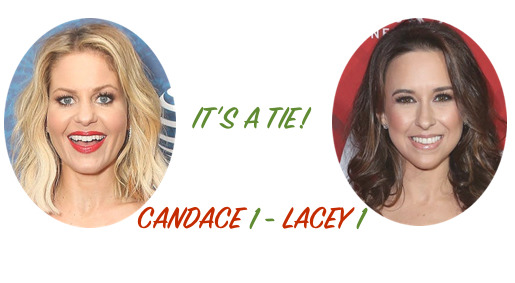
Whose character has the most festive name?
Lacey plays Darcy Fitzwilliam, which is an extremely witty Pride and Prejudice in-joke, but sadly not at all festive.
Candace portrays Noelle Carpenter, a name so yule-appropriate that I’m not even mad they didn’t call her Holly. (We also learn that the character’s mother wanted to call her ‘Jingle’. This is implied to be over-the-top, but personally I’m totally down to see a lead named Jingle Turtledove within Hallmark’s 2019 output.)
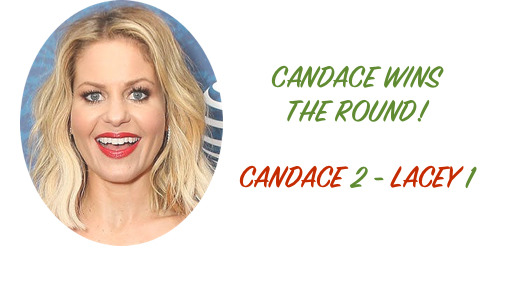
Whose character is the most busy?
Lacey / Darcy works in a high-powered New York job where she spends her days pacing around, talking about financial reports and projected something-somethings. When she heads back to her hometown to spend the holidays with her family for the first time in years, the other partners scheme against her. Lacey / Darcy then finds herself having to defend her job, while also helping her Mum organise a boring small-town fundraiser, while also being wooed by Carl, her business-minded ex, not to mention Luke, the humble hometown chef.
How can Candace / Noelle possibly compete with that?
I’ll tell you how! While slaving away in a corporate role at major department store Fulton’s, Candace / Noelle is visited by an actual guardian-angel-ghost-lady who uses time travel to show her moments in her life when she took the wrong path e.g. she should re-kindle her dream of becoming a professional photographer, have a better relationship with her father, and also trust in almighty God (yay for Him!) So to summarise: we have a lady with a demanding job, a loss of faith, family issues, a desired career change, being flung around willy-nilly by TIME TRAVEL, oh and she also hangs out with a fireman a lot. Yep, I think we've found our busiest candidate.
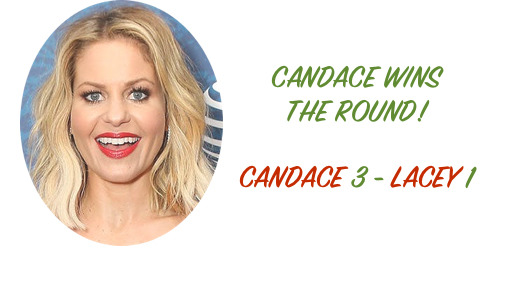
Who is located in the most picturesque, snow-covered town?
Lacey / Darcy starts off in NY, but hoofs it quickly to the charming town of Pemberley, Ohio, where everyone knows your name and that you’ve been feeling ‘unsettled’ lately.
I failed to notice where Candace / Noelle is located - but it’s a place that features a giant department store and a glossy loft-style apartment, and thus it gave me a distinctly urban vibe. The horror!
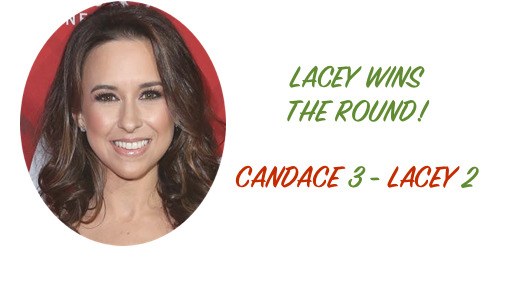
Who has the most magical / supernatural encounters?
As mentioned above, Candace / Noelle is literally mentored by some kind of festive phantom, who keeps gifting our heroine different shoes. When tried on, these ping Candace / Noelle around to various times in her life, allowing her to put right what once went slightly, tediously wrong.
The closest Lacey / Darcy gets to a magical experience is when the waiters don’t turn up to her dumb event, so some poor children step in to do the job.
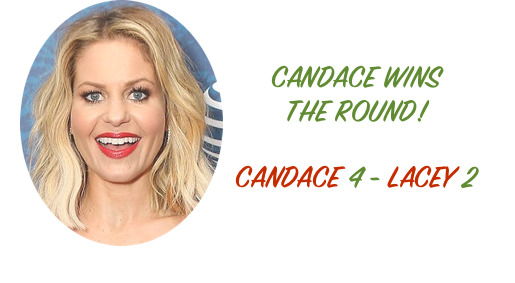
Whose path to Happy Ever After is threatened by the greatest misunderstanding with a man?
Candace / Noelle finds herself working with firefighter Jake to put together the department store’s annual Christmas Charity Gala (gosh, Hallmark, what is it with you guys and bloomin’ galas?) Jake seems fine, so we’re meant to root for them to be together. But time travel shenanigans mean Candace / Noelle almost ends up with Jake’s brother by mistake! Does that sound interesting? It’s not. I mean, it’s no Marty McFly having the hots for his own Mum.
Meanwhile, Lacey / Darcy is on track to smooch Luke The Chef, until he Badly Sees her rejecting Carl The Businessman and thinks they’re romantically reunited. This set-up is truly Shakespearean in its intrigue!
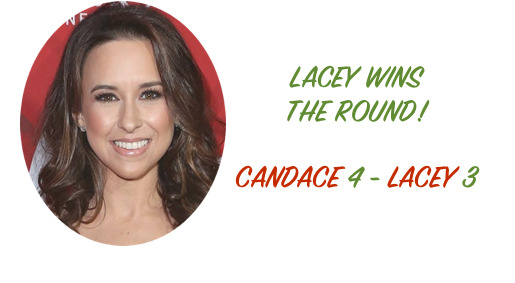
Who utters the best line of dialogue?
Candace / Noelle: “You can never have too much Christmas!”
Lacey / Darcy: “Christmas isn’t just a day or a season; it’s a state of mind.”
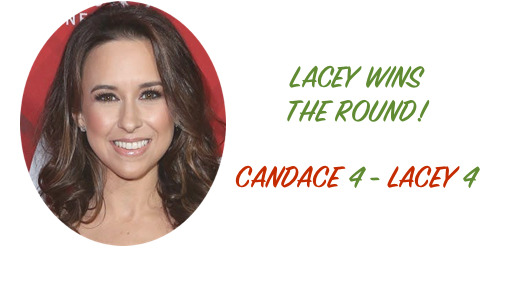
Which means, dear reader, that we have a Christmas miracle on our hands...
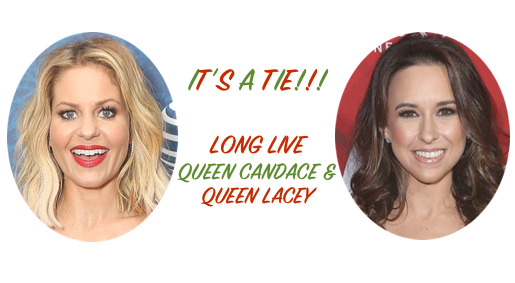
With four points apiece, these lovely ladies must share 2018′s crown!

Thank you heartily for your loyal companionship during this season’s fairly lame crop of movies. Join us again next year when we hope for more magic, a greater number of villains, and someone cute we had long forgotten from 90s TV!
#hallmark#hallmark christmas#lacey chabert#candace cameron bure#a shoe addict's christmas#pride prejudice and mistletoe
2 notes
·
View notes
Text
Book Review 2022 (1/50): Pride and Prejudice by Jane Austen
So, I've been trying to get out of my reading slump so I decided to, of course, start reading last month which, to be honest has not been good because the first book that i read took me three weeks to finish (but maybe that's because I might have procastinate reading). 😅😅😅😅
📖 Pride and Prejudice: Book Review
So this is my first book that I decided to engage myself to get me out of my reading slump. Although, I realized it maybe a mistake because it took me almost three weeks for me to finish it, (from Aug 25 to Sept 12) and it has nothing to do with the book but because of some personal reasons. One reason is that I am not a native English speaker and second, it is a classic and most of the words and vocabulary used are above my reading comprehension. Even if that's the case, I really wanted to finished it, because I also watched an adaptation of it (Pride and Prejudice 2005) and had became captivated by the story of Elizabeth Bennet and Mr. Darcy.
The narration of the story for me was a little bit confusing because I sometimes do not know who is actually talking (this might also contribute to how long I actually finished reading because I kept rereading some parts to digest every part of it) but other than that, I think the story is well executed and you get to see each characters. Although, most of their features were generalized and not specified (like how Mr. Darcy was described as tall and handsome but there were no definite description of the color of his hair and eyes, or how Elizabeth was described as plain looking but her eyes were beautiful in a way that draws you, not that it matter anyway), I liked that in a way, the readers get to imagine whatever they want to be Mr. Darcy or Elizabeth look like, but, in the end, it's their personality that matters. While reading it, I finally get it who is said to have the Pride and Prejudice in the title. To be honest though, I still think they both have Pride and Prejudice too. Mr. Darcy seemed to emanate Pride (because of his high social status and rich upbringing) but has a bit Prejudice (because of how he views Elizabeth, someone with a poor social standing and inferior family than his, although true). Elizabeth emanate Prejudice (as she choose to accept the criticisms and remarks made by Mr. Wickham without actually confiding with Mr. Darcy) and a little bit Pride as she rejected Mr. Darcy's proposal because of how he insulted her and her family (like Mr. Darcy, I sometimes cannot with you,).
But when Elizabeth rejected Mr. Darcy's proposal, this is the part that got me excited and kept me on continuing reading the story. In this part, we can see that both the protagonists struggle with repressed and unexpressed feelings with one another that through this, I think, they had a clarity of who they actually are and accept their flaws and try their best to change, to be a better person for the other. Mr. Darcy realized his flawed pride and tried to humble it down, helping the Bennet's family during the elopement of Mr. Wickham and Lydia to add some redemption for Elizabeth and Elizabeth realizing that her prejudices against Mr. Darcy where exaggerated and were not true which helped her see Mr. Darcy in a better light. Because of this, I think Pride and Prejudice executed their character development well and deserved its reputation as one of the greatest romance classics of all time.
If you need a reason to read this book, might I also add that even if you watched the 2005 film version or the BBC version, there would be parts that those adaptations would not have shown you but only in the book (although there were parts that were in the adaptations that were not in the book).
To end this, might I add some quotes from the book to motivate you to read it:
“It has been coming on so gradually, that I hardly know when it began.-”
“I cannot fix on the hour, or the spot, or the look, or the words, which laid the foundation. It is too long ago. I was in the middle before I knew that I had begun.”
I hope I didn't spoil anything for you and I hope that you'll find time to read this soon. 😊
#pride and prejudice#elizabeth bennet#mr. darcy#book review#book review 2022#goodreads#romance#classic#jane austen
1 note
·
View note
Text
Semester Reading List
Another 6 months have passed and that can only mean one thing: Another semester reading list! Here are the books I’ve read from April ‘18 until early October ‘18, including summaries and my thoughts on them:
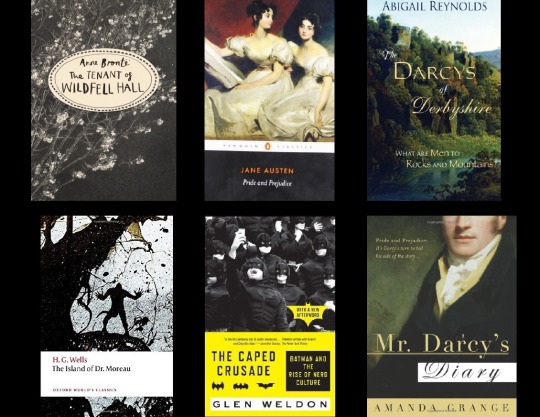
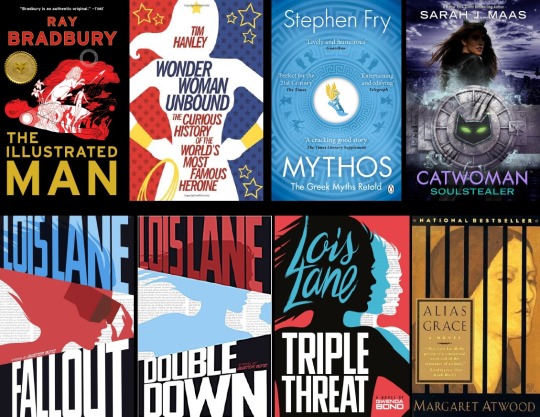
The Tenant of Wildfell Hall by Anne Bronte:
Summary: When the mysterious and beautiful young widow Helen Graham becomes the new tenant at Wildfell Hall rumours immediately begin to swirl around her. As her neighbour Gilbert Markham comes to discover, Helen has painful secrets buried in her past that even his love for her cannot easily overcome.
Thoughts: I loved this one a lot! (I read it in, like, two or three days - and it’s a very thick book! but it’s just really good) I was pretty surprised at first when I found out that it begins telling the story from the male protagonist’s perspective (Gilbert); which is not what I expected, admittedly. The middle part of the book are excerpts from the female protagonist’s perspective (over the course of her courtship, then later marriage with her abusive husband) - it was really fascinating to catch such an intimate glimpse of Helen’s point of view and see it change over time... but it was also very nice to see how she’d always been a strong character, although at first more falling into that “woman as the savior of the man’s virtuous attributes” trap, before she realizes that if she wants her son not to grow up like his father, she has to leave (which is very big thing for that time, when you think about it) - and her husband’s manipulating behavior to keep her at his side (complete with the classic “you don’t love me as much as I love you”-accusation). In addition to that, it was also very nice to see Gilbert react to Helen’s diary entries with a lot of understanding and just being very respectful regarding her wishes from then on (he’d been acting a little douche-y and presumptuous at times prior to that) and also see Gilibert bond with Helen’s son... This book felt just very modern in the way it dealt with this serious topic of an abusive marriage, which made it a very fascinating read! (This was my first book written by a Bronte sister and I feel like I have picked the absolute winner with Tenant of Wildfell Hall :)
Pride and Prejudice by Jane Austen
Summary: When Elizabeth Bennet first meets eligible bachelor Fitzwilliam Darcy, she thinks him arrogant and conceited, while he struggles to remain indifferent to her good looks and lively mind. When she later discovers that Darcy has involved himself in the troubled relationship between his friend Bingley and her beloved sister Jane, she is determined to dislike him more than ever.
Thoughts: I’ve already put my thoughts on P&P down in this post (I just read this Austen book very often ;)
The Darcys of Derbyshire by Abigail Reynolds:
Summary: During her trip to Derbyshire, Elizabeth Bennet longs to see the view from the famous Black Rocks, but her aunt and uncle refuse to allow her to ascend to the highest rock outcroppings alone. Elizabeth’s distress is only worsened by a chance encounter with Mr. Darcy - at least until he offers to accompany her to the Black Rocks. Unaware that the place has special significance for Fitzwilliam Darcy, she accepts his invitation. During their adventure, Darcy tells her the story of how his parents met and married despite many obstacles in their way; and like Darcy’s mother before her, Elizabeth learns there is more to the men of the Darcy family than meets the eye.
Thoughts: I really loved the story of Darcy’s parents, giving a little more backstory to the Darcy’s that came before the best-known Darcy of them all ;) The Lizzie/Darcy part of this book didn’t really work for me, though - it felt a little too fanfiction-y (read: romantic wish fulfillment that doesn’t exactly fit the proper nature of Jane Austen’s world... - or Darcy’s for that matter) for my taste. Nevertheless, it was still a very interesting read.
The Island of Doctor Moreau by H.G. Wells
Summary: A shipwrecked Edward Prendick finds himself stranded on a remote Noble island, the guest of a notorious scientist, Doctor Moreau. Disturbed by the cries of animals in pain, and by his encounters with half-bestial creatures, Prendick slowly realises his danger and the extremes of the Doctor’s experiments.
Thoughts: Very creepy. Definitely an interesting read (it’s a classic, after all... I just recently read a Wonder Woman comic that had a very ‘Island of Doctor Moreau’-vibe to it, which was interesting) and very suspenseful in the second half. It definitely made a good point about the importance of ethics in science. There were a few moments that made me uncomfortable because they read kinda racist to me (I guess you could argue that that’s simply influenced by the mindset of the society and era back then, but that’s just something I really didn’t like at all.)
The Caped Crusade: Batman and the Rise of Nerd Culture by Glen Weldon
Summary: Since his debut in Detective Comics #27, Batman has been many things: a two-fisted detective; a planet-hopping gadabout; a campy Pop Art sensation; a pointy-eared master spy; and a grim ninja of the urban night, cycling through eras of dark melodrama and light comedy and back again. He is constantly changing, jumping from page to screen and beyond, and yet he remains one of our most revered cultural icons. In this witty, wise, and a fascinating history, MPR critic and self-proclaimed nerd Glen Weldon explains why we’ve continued to look to this masked man in the night - and what that devotion tells us about ourselves.
Thoughts: Very extensive, in-depth and interesting book about Batman and nerd culture; the language was sometimes very flowery, with lots of fancy descriptors (which sometimes threw me off a little), but overall very fun and cool! (Also, I’m just a huge Batman fangirl, I love reading this kind of stuff! ;)
Mr. Darcy’s Diary by Amanda Grange
Summary: The only place Darcy could share his innermost feelings... was the pages of his diary... Torn between his sense of duty to his family name and his growing passion for Elizabeth Bennet, all he can do is struggle not to fall in love.
Thoughts: I liked this one a lot better than ‘The Darcys of Derbyshire’, I’ve got to admit - it felt a lot more natural and fitting for ‘canon’ than the other P&P inspired book. I very much liked how Darcy’s Diary gave the reader context for Darcy’s prickliness in the beginning of Pride & Prejudice (having the Wickham/Georgiana situation happen not too long ago, for example). It was also nice to read about Darcy’s thoughts and feeling regarding his friendship with Bingley (and his feeling for Lizzie, of course ;) Darcy is one of my favorite characters so it was a lot of fun to be able to read this P&P companion from his point of view :)
The Illustrated Man by Ray Bradbury
Summary: Ray Bradbury brings wonders alive. For this peerless American storyteller, the most bewitching force in the universe is human nature. In these eighteen startling tales unfolding across a canvas of tattooed skin, living cities take their vengeance, technology awakens the most primal natural instincts, and dreams are carried aloft in junkyard rockets. Provocative and powerful, The Illustrated Man is a kaleidoscopic blending of magic, imagination, and truth—as exhilarating as interplanetary travel, as maddening as a walk in a million-year rain, and as comforting as simple, familiar rituals on the last night of the world.
Thoughts: I just absolutely adore Ray Bradbury’s short stories (even though they don’t not necessarily fall into the genres I usually read). There is just something about his writing that feels very natural and simple to me, while simultaneously being very layered and making me ponder about the deeper meaning of the stories I’ve just read. This book collects mainly creepy (and excellent) short stories like ‘The Veldt’ or ‘Zero Hour’ (’the Veldt’ is the first short story in this book and it’s so amazing; it had me at the edge of my seat throughout), but also a kinda sweet one like ‘The Rocket’ - I very much enjoyed reading this book!
Wonder Woman Unbound: The Curious History of the World’s Most Famous Heroine by Tim Hanley
Summary: With her golden lasso and her bullet-deflecting bracelets, Wonder Woman is a beloved icon of female strength in a world of male superheroes. But this close look at her history portrays a complicated heroine who is more than just a female Superman. When they debuted in the 1940s, Wonder Woman comics advocated female superiority and the benefits of matriarchy; her adventures were also colored by bondage imagery and hidden lesbian leanings. In the decades that followed, Wonder Woman fell backward as American women began to step forward. Ultimately, Wonder Woman became a feminist symbol in the 1970s, and the curious details of her past were quickly forgotten. Exploring this lost history adds new dimensions to the world’s most beloved female character, and Wonder Woman Unbounds delves into her comic book and its spin-offs as wekk as motivations of her creators to showcase the peculiar journey of a twentieth-century icon.
Thoughts: Yet again, a really interesting and entertaining book by Tim Hanley about an awesome comic book lady! I already knew plenty about Wonder Woman, but there were still things I didn’t know about the world’s most famous superheroine. Plus, it’s always cool to learn more about the background and historical context behind the story of this amazing amazon!
Mythos: The Greek Myths Retold by Stephen Fry
Summary: No one loves and quarrels, desires and deceives as boldly or brilliantly as Greek gods and goddesses. In Stephen Fry's vivid retelling we gaze in wonder as wise Athena is born from the cracking open of the great head of Zeus and follow doomed Persephone into the dark and lonely realm of the Underworld. We shiver when Pandora opens her jar of evil torments and watch with joy as the legendary love affair between Eros and Psyche unfolds. Mythos captures these extraodinary myths for our modern age - in all their dazzling and deeply human relevance.
Thoughts: I always enjoyed reading the book about Greek myths that I’ve had as a child and I enjoy Stephen Fry’s humor, so I just had to buy this book when I saw it at my local bookstore - an excellent decision, as it turned out! Stephen Fry tells these ancient myths in such an entertaining and witty manner that I just couldn’t help but laugh out loud sometimes! It didn’t matter if I was already familiar with a particular myth or if it was one completely unknown to me, I was just completely glued to this book, eager to find out more and read Stephen Fry’s fun take on it! As this book doesn’t even begin to cover all the stories of Greek mythology that exist, I really hope that there will be a continuation of this book in the future :)
Catwoman: Soulstealer by Sarah J. Maas
Summary: Two years after escaping Gotham City’s slums, Selina Kyle returns as the mysterious and wealthy Holly Vanderhees. Batman is off on a vital mission and Gotham is at the mercy of the new thief on the prowl. Joined by the cunning Poison Ivy and notorious Harley Quinn, she wreaks havok across the city. Selina is playing a desperate game of cat and mouse. But with a dangerous threat from the past on her tail, will she be able to pull of the ultimate heist?
Thoughts: To be honest, I was pretty disappointed by this book of the DC Icons Series. It started out very promising and interesting with seventeen-year-old Selina living on her own, taking care of her sister, Maggie, who’s seriously ill. To be able to pay for the medical bills, Selina has become part of a street fighter gang, working for the mob boss Falcone. With this premise, I would have loved to just read a story about how Selina finds a way to break free from Falcone’s influence to do her own thing and become the kickass cat burglar we know and love - but instead, Selina is found out by the police and social services and then, at the precinct, gets offered one chance to escape the system to instead become an assassin for Talia al Ghul! A couple of years later, Selina returns to Gotham under the guise of socialite “Holly Vanderhees”. To me, Selina has alwas been someone who has been very independent and self-reliant and now to have her impressive skill set be traced back to the al Ghuls just doesn’t sit particularly well with me. Over the course of the rest of the book, Selina does team up with Poison Ivy and Harley Quinn, which is normally something I absolutely love (Gotham City Sirens, for the win!), but Ivy felt extremely off to me: too nice, too soft, too goody-two-shoes, I guess? I don’t know, it just didn’t feel right to me. In addition to all of that, Selina has to share her own book with Luke Fox, aka Batwing. I have nothing against Luke at all, and his backstory is definitely interesting, but a) due to his dealings with his PTSD (that gets triggered by loud noises such as gunshots which, for a vigilante, is just plain dangerous and I can’t imagine Bruce being nonchalant about this kind of thing when ‘recruiting’ someone with these kind of issues) and other problems, he’s not particularly good at the whole superheroing, which is a bummer and b) there is so much going on in his life that I simply felt that Luke should have just gotten his own book so his character could be thoroughly explored. Also, I just wasn’t digging the romance between Selina and Luke (that might be my inner BatCat shipper talking, but I wasn’t feeling the chemistry between these two at all.) My biggest issue with this book is, that while I was reading it, I had like three ideas for other Catwoman stories I would have rather read, making this book just a reminder of missed opportunities for me.
Lois Lane (Fallout trilogy) by Gwenda Bond
Summary: … a contemporary reimagining of teenage Lois Lane. She and her family have lived all over, but now they’re in Metrolpolis for good, and Lois is determined to stay quiet. Fit in. Maybe make a friend. As soon as she walks into her new high school, though, she can see it won’t be easy. A group known as the Warheads is making life miserable for another girl at school. They’re messing with her mind somehow, via the high-tech immersive video game they all play. Not cool. Armed with her wit and her new snazzy job as a reporter, Lois has her sights set on solving the mystery. But even she needs help sometimes. Thank goodness for her maybe-more-than-a-friend, someone she knows only by his screen name, SmallvilleGuy…
Thoughts: I’ve already read these books since I’ve started doing my reading lists, so you can find my thoughts on the first two books here and my thoughts on the third book here.
Alias Grace by Margaret Atwood
Summary: Sixteen years have passed since Grace was locked up, at the age of 16, for the cold-blooded murders of her employer and his housekeeper/lover. Her alleged accomplice in the crimes, James McDermot, paid the extreme sentence of the law and was hanged on November 21, 1843. But some thought Grace was innocent, and her sentence has been commuted to life imprisonment. After a spell in the Lunatic Asylum she now claims to have no memory of the murders, and so Dr. Simon Jordan tries to wake the part of Grace's mind which lies dormant. But what will he find?
Thoughts: I first found out about Margaret Atwood’s Alias Grace through the Netflix series (which is really good!), so I knew most of the story already when I got myself the book. Turns out that the Netflix series is a pretty good adaptation of the book - still, the book offered more insights into the various characters (as books are wont to do) and I liked that the book wasn’t just simple narration from different points of view, but was also interspersed with excerpts from actual newspaper clippings, Susanna Moodie’s book and written confessions, as well as a poem at the beginning of each chapter and the occasional letter written by the characters. I did sometimes hit points during which reading was going pretty slow (maybe because it reads old-fashion-y, which is sometimes difficult for me as a non-native English speaker; maybe because it’s not exactly a short book you can just breeze through... I don’t know), but overall, it is a really intriguing story with multi-layered and complicated characters, which is always a win in my book (pun not intended)!
If you’d like to know more about these books (and/or my thoughts about them) feel free to message me at any time or leave an ask in my askbox! :)
The summaries are from the back of the books or amazon pages.
#tenant of wildfell hall#wonder woman unbound#mythos: the greek myths retold#the darcys of derbyshire#darcy's diary#the island of dr. moreau#alias grace#catwoman: soulstealer#illustrated man#pride and prejudice#lois lane: fallout#the caped crusade: batman and the rise of nerd culture#anne bronte#tim hanley#stephen fry#margaret atwood#h.g. wells#gwenda bond#ray bradbury#sarah j maas#glen weldon#amanda grange#abigail reynolds#jane austen#reading list
4 notes
·
View notes